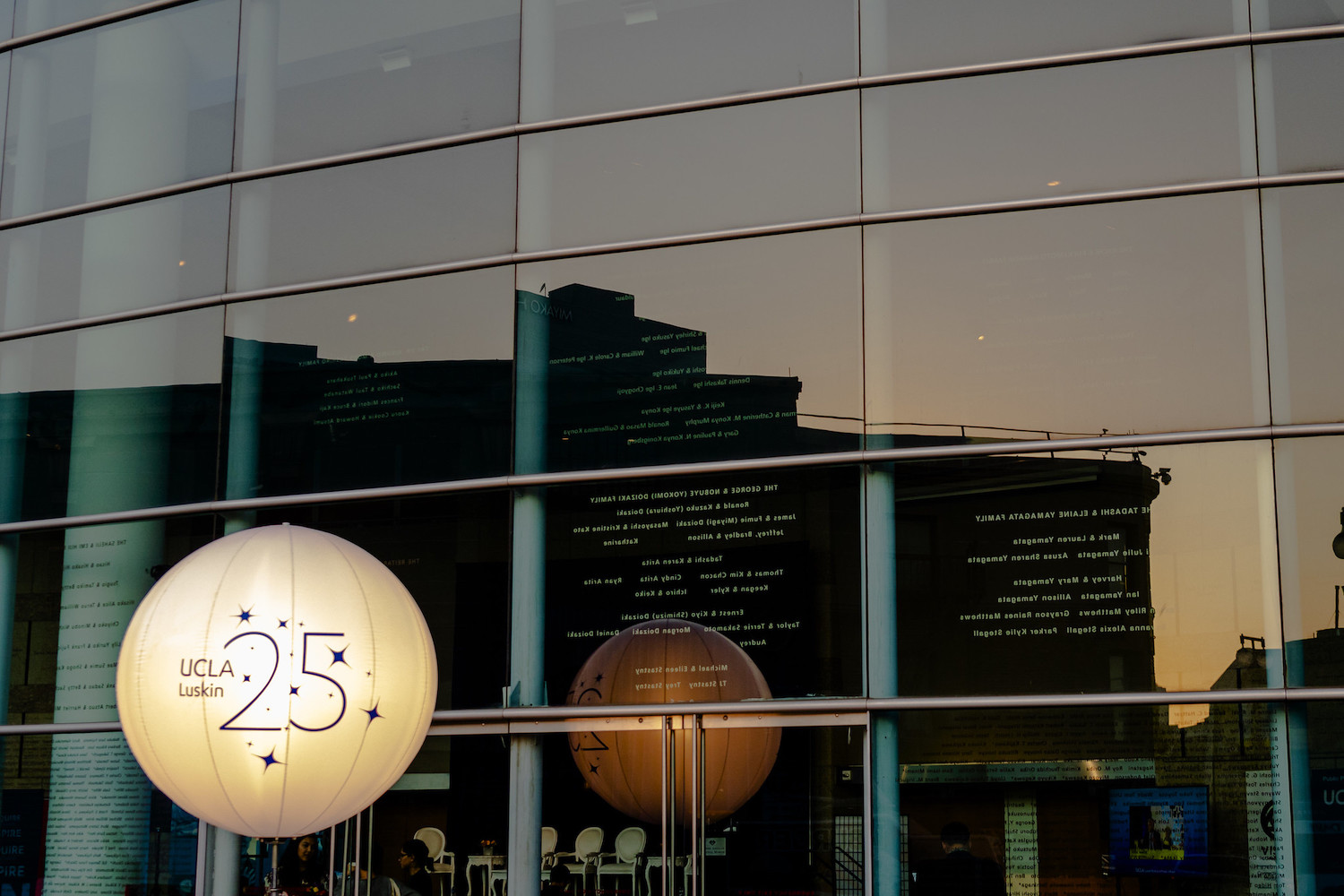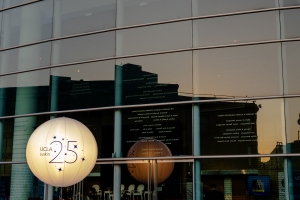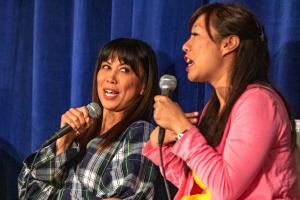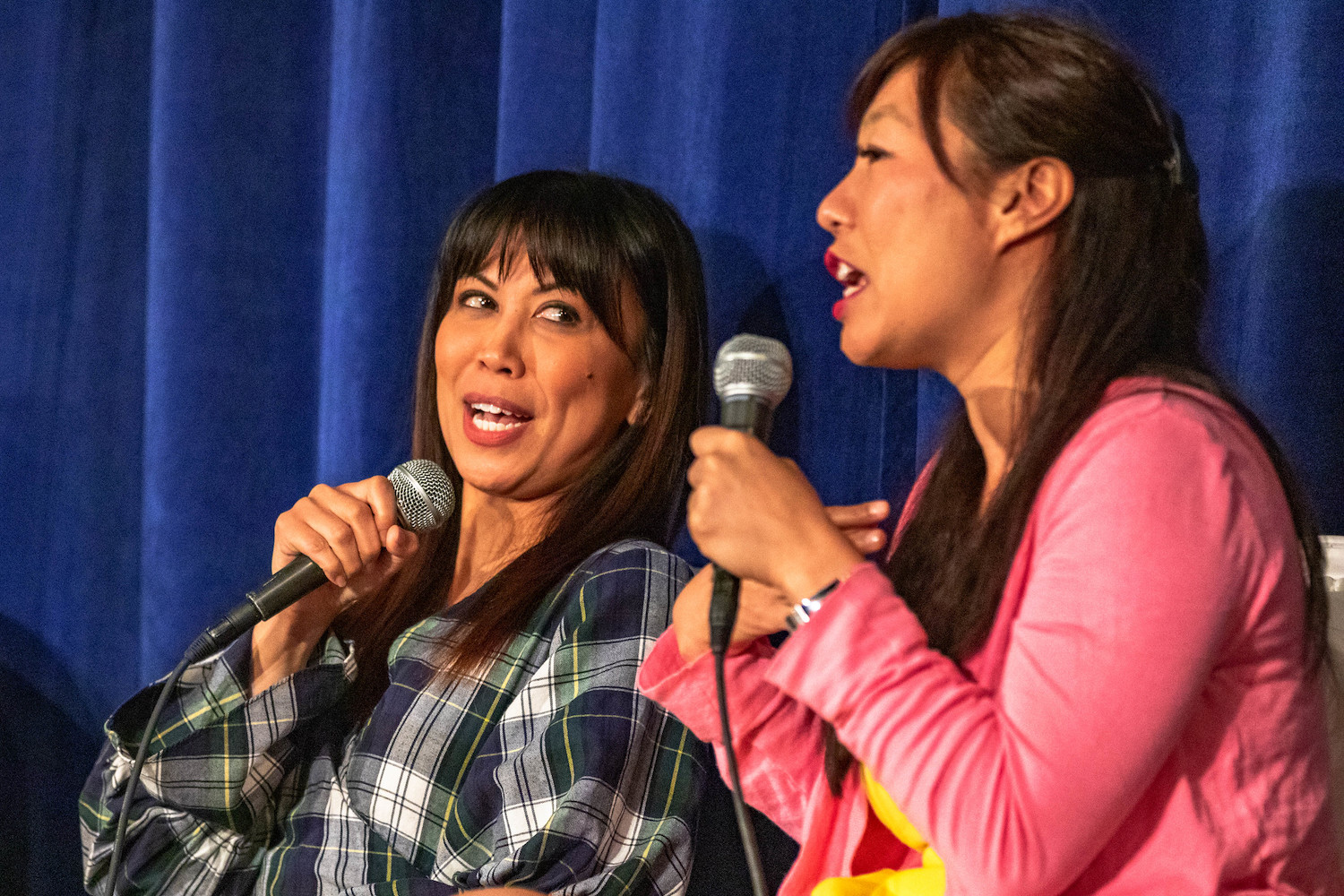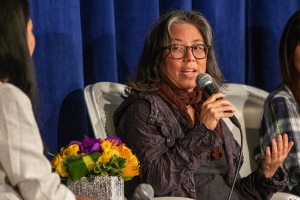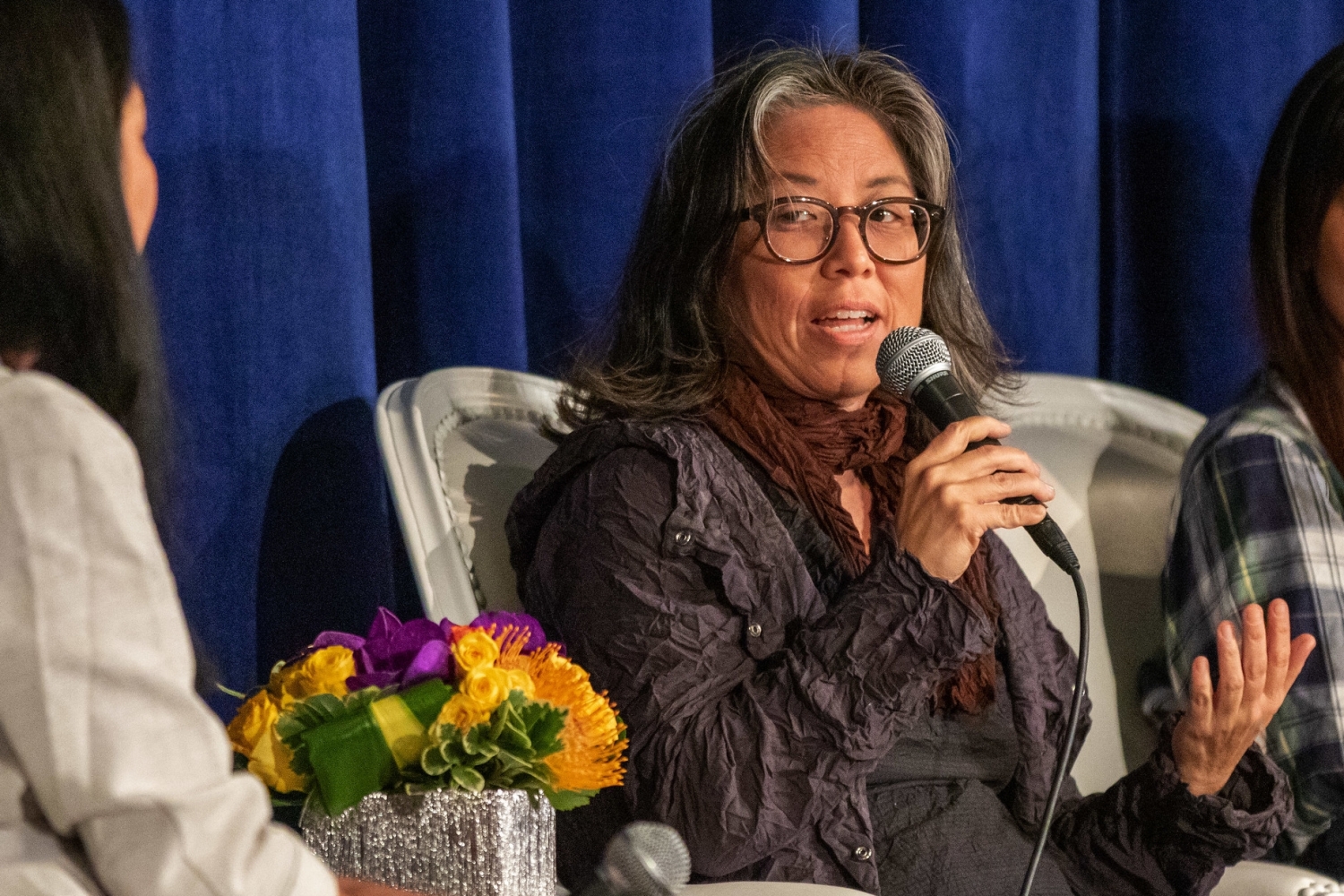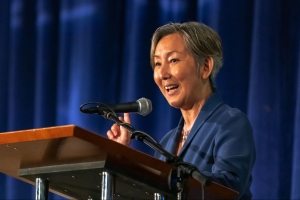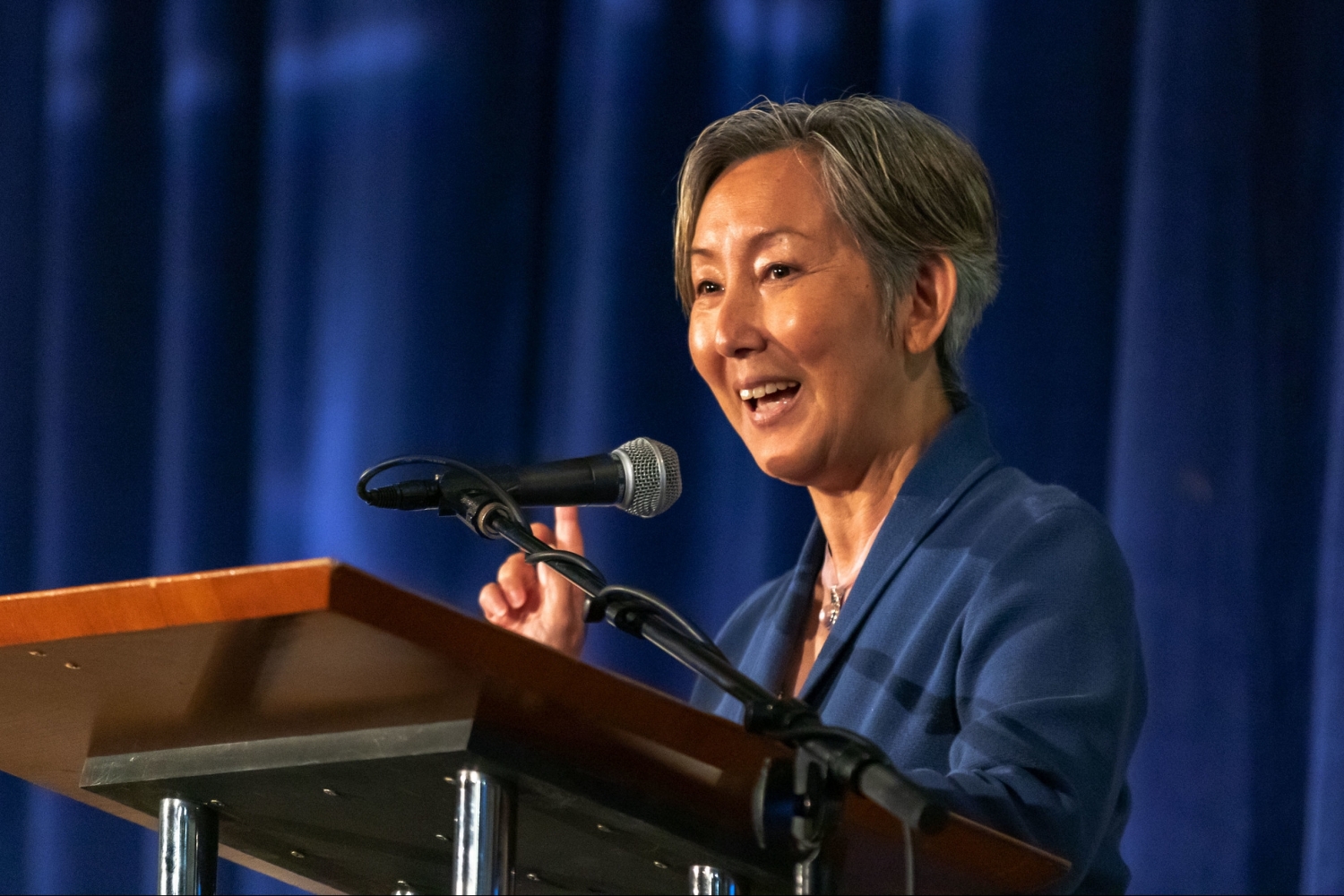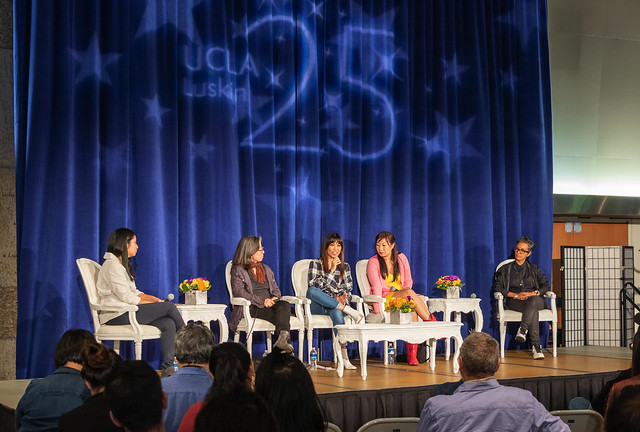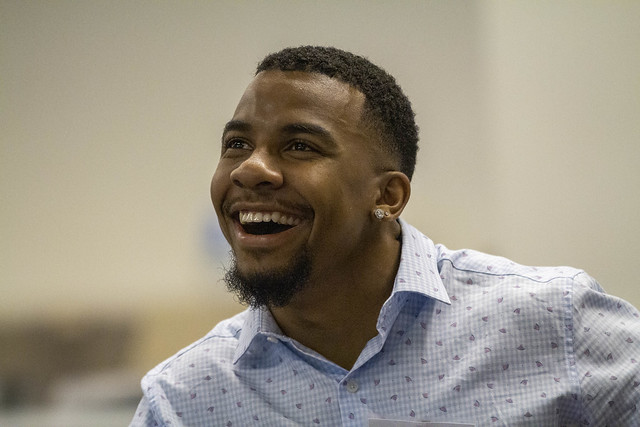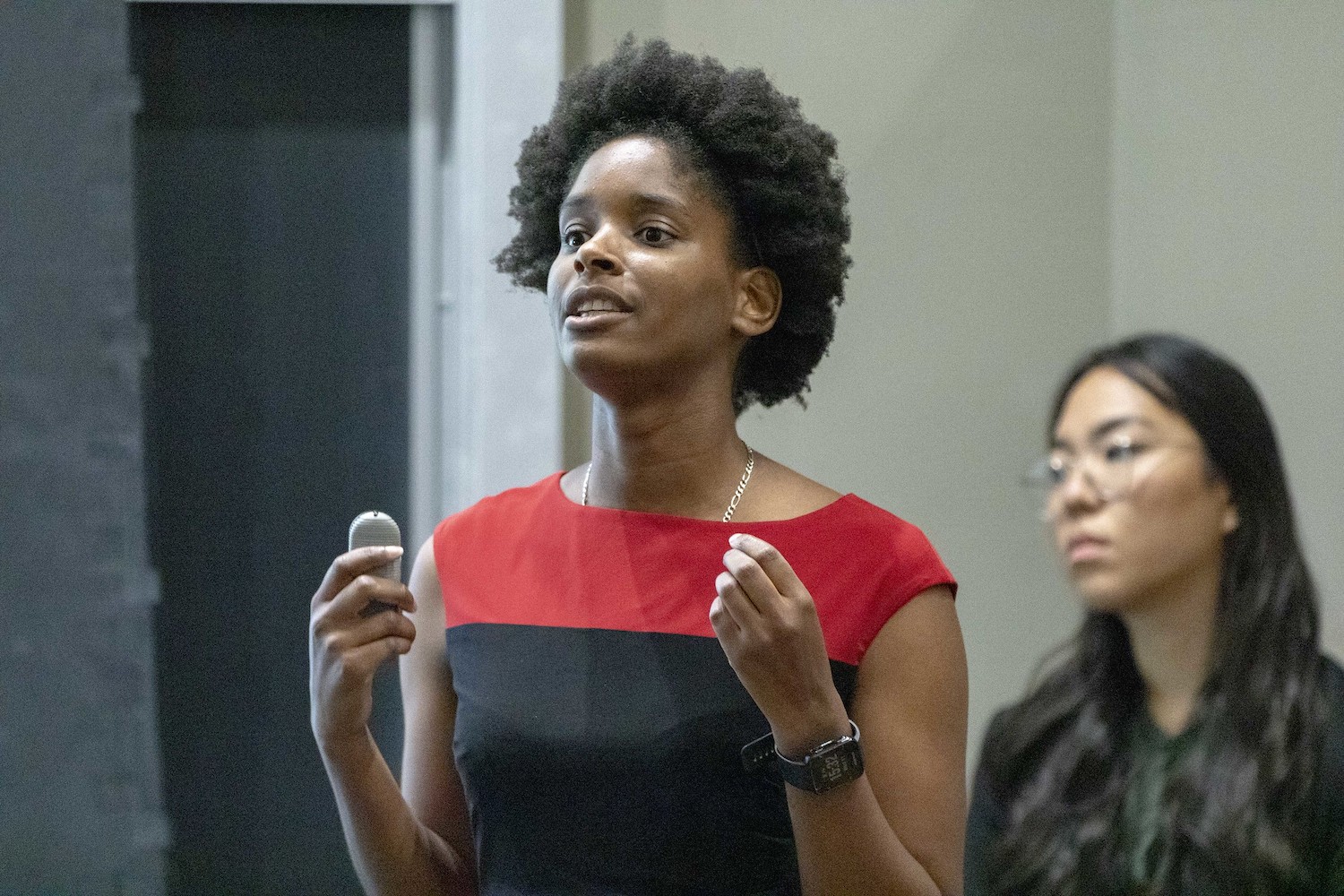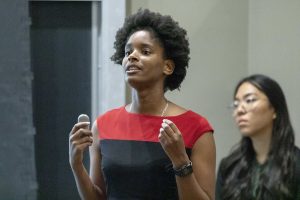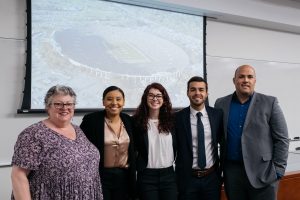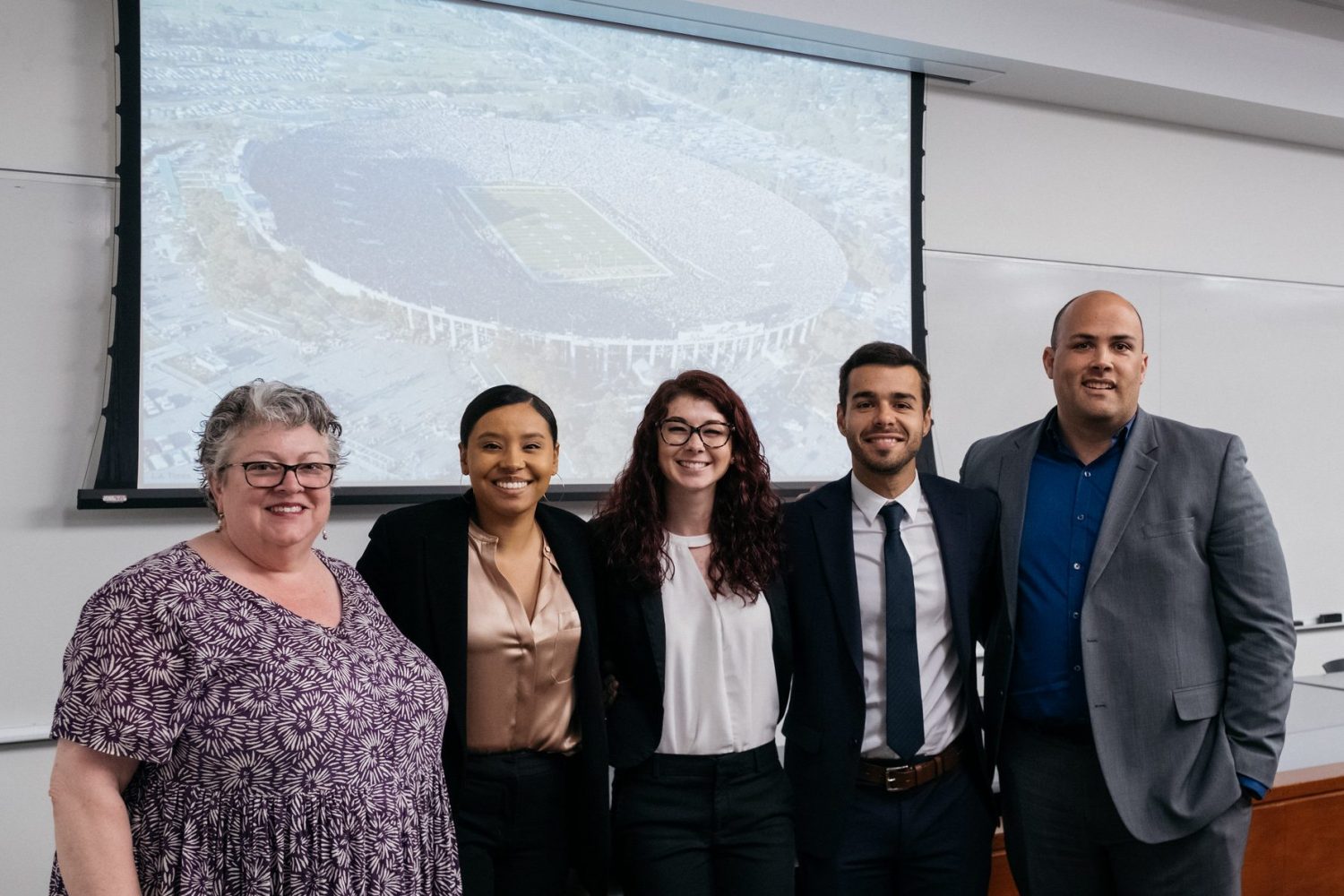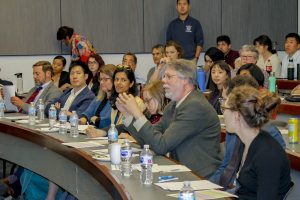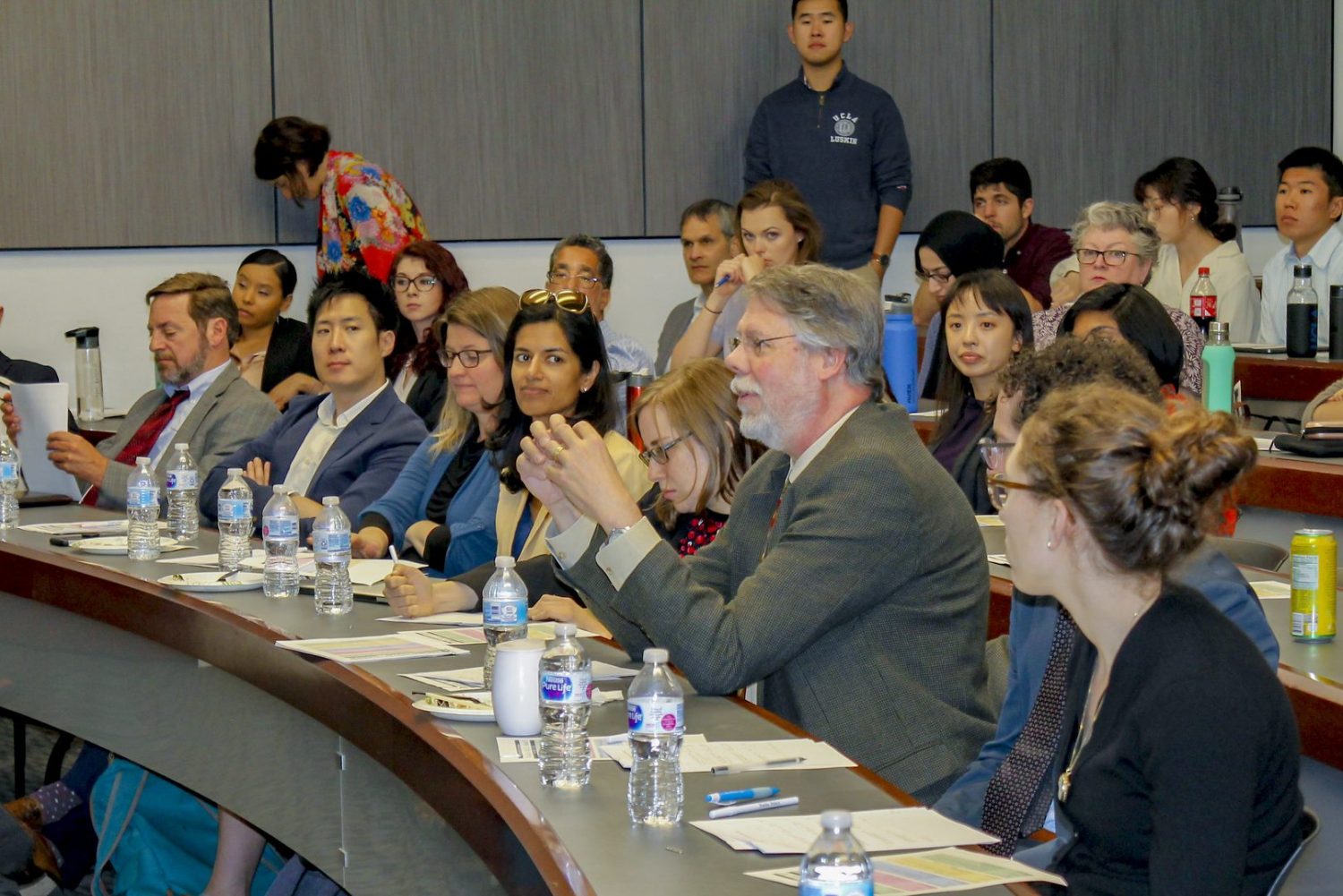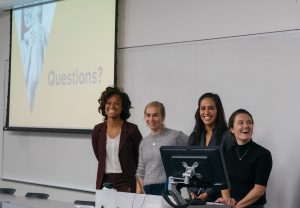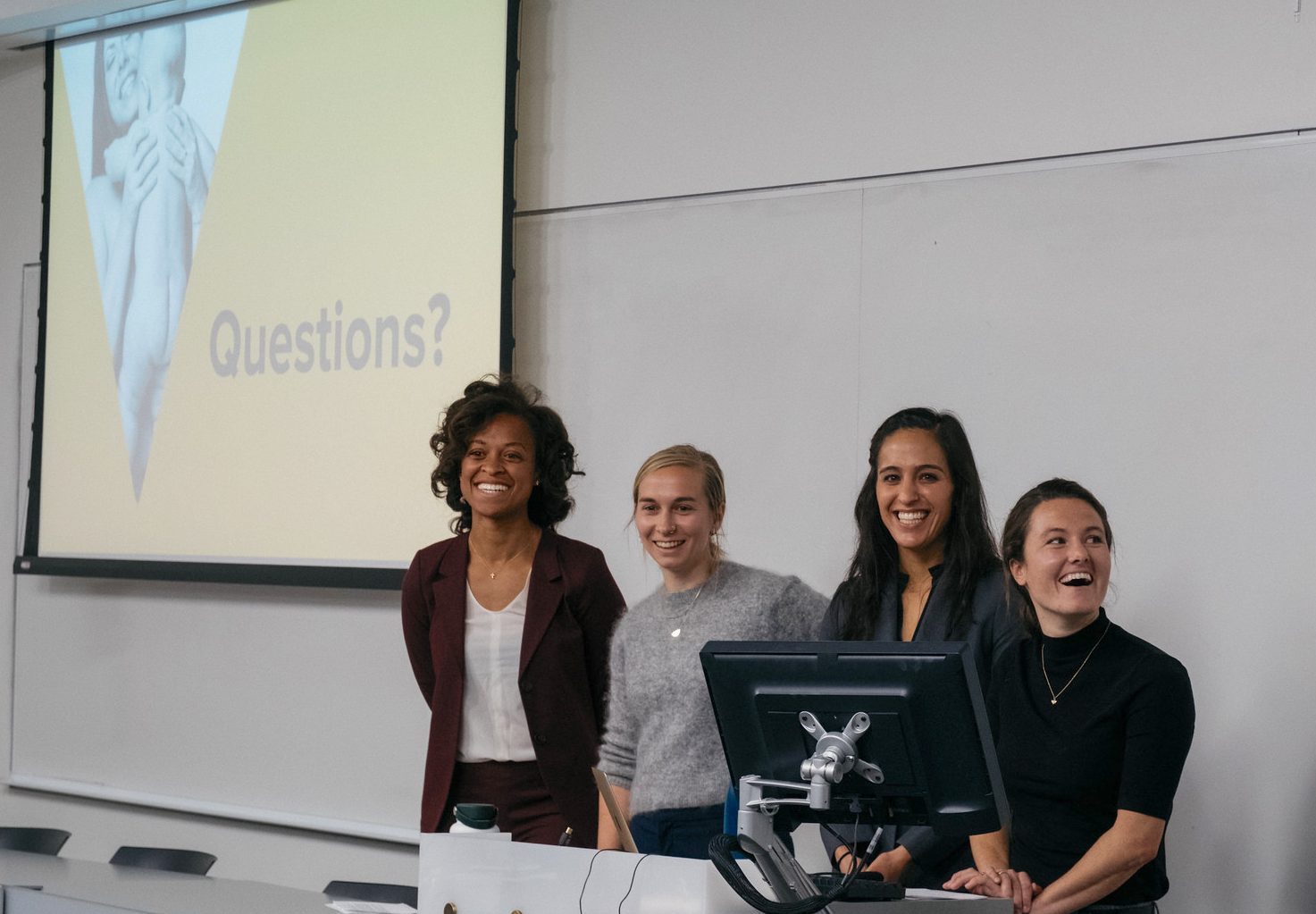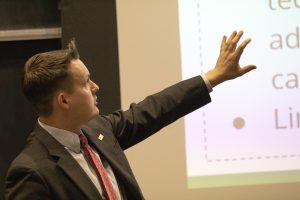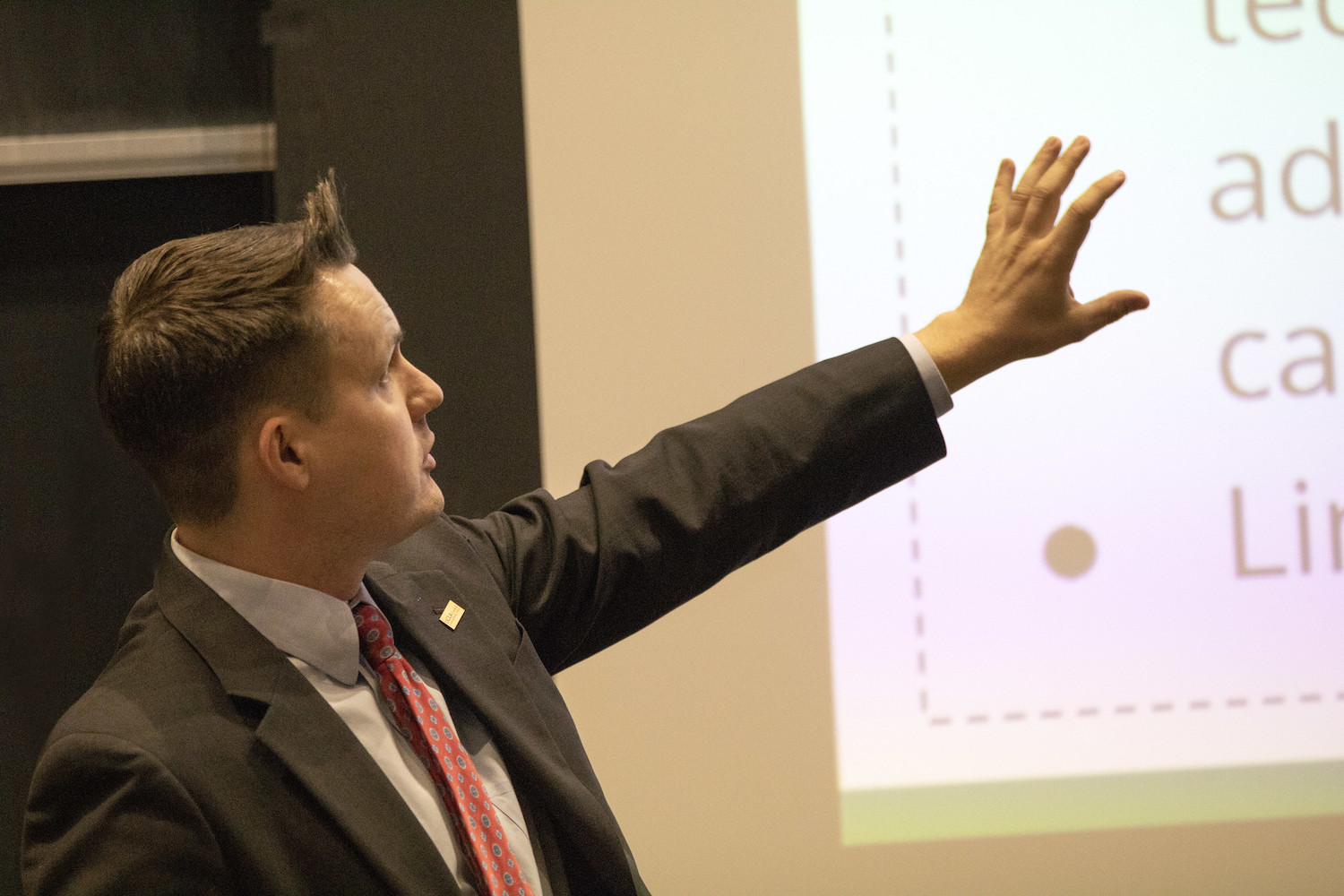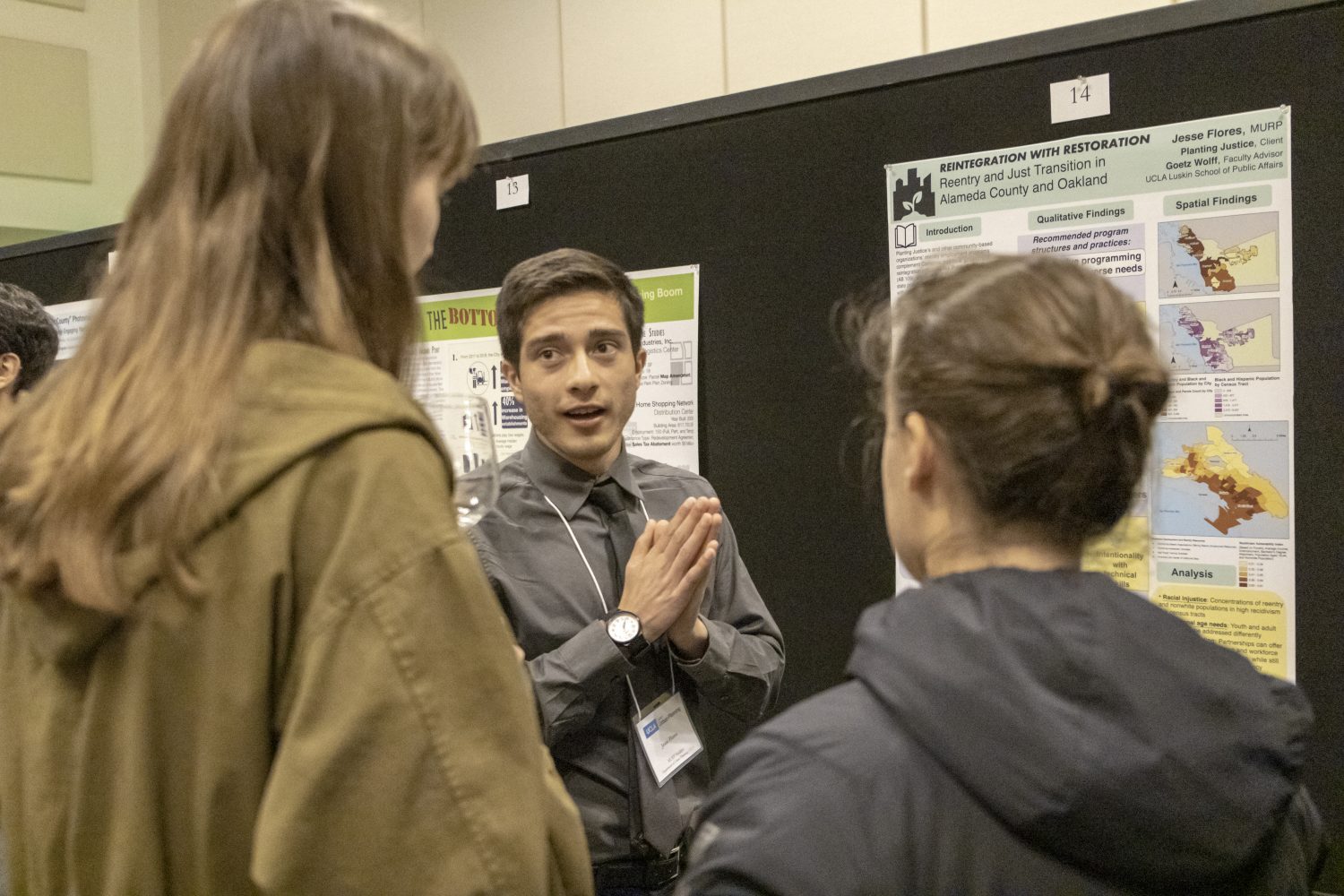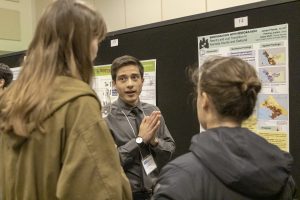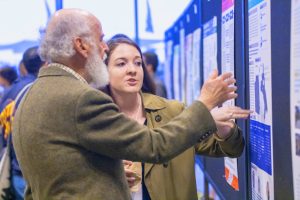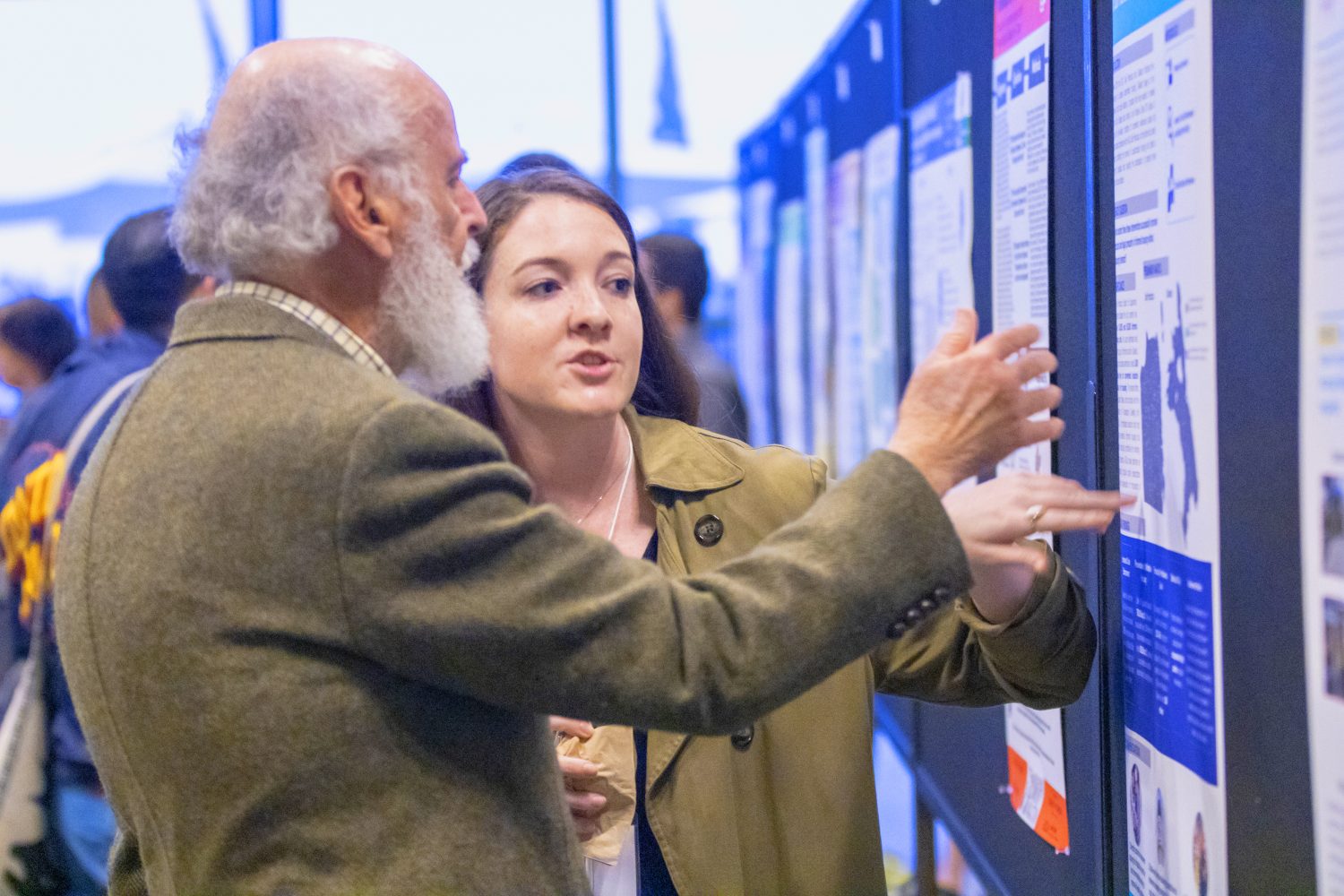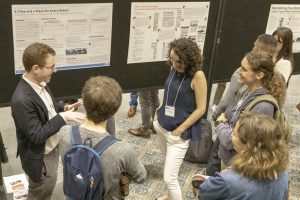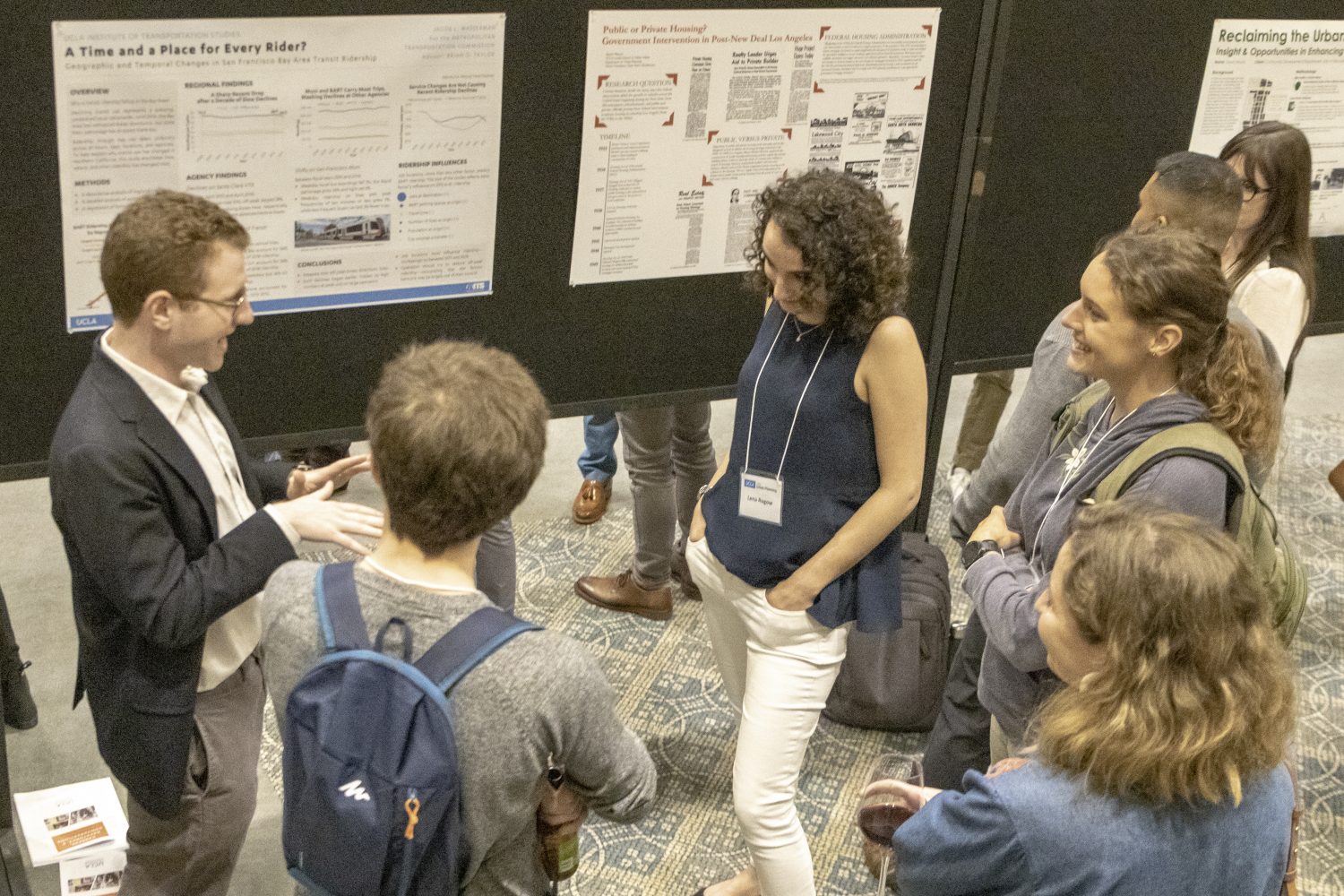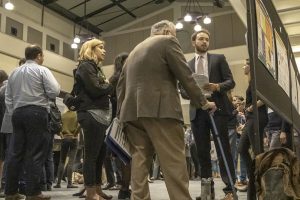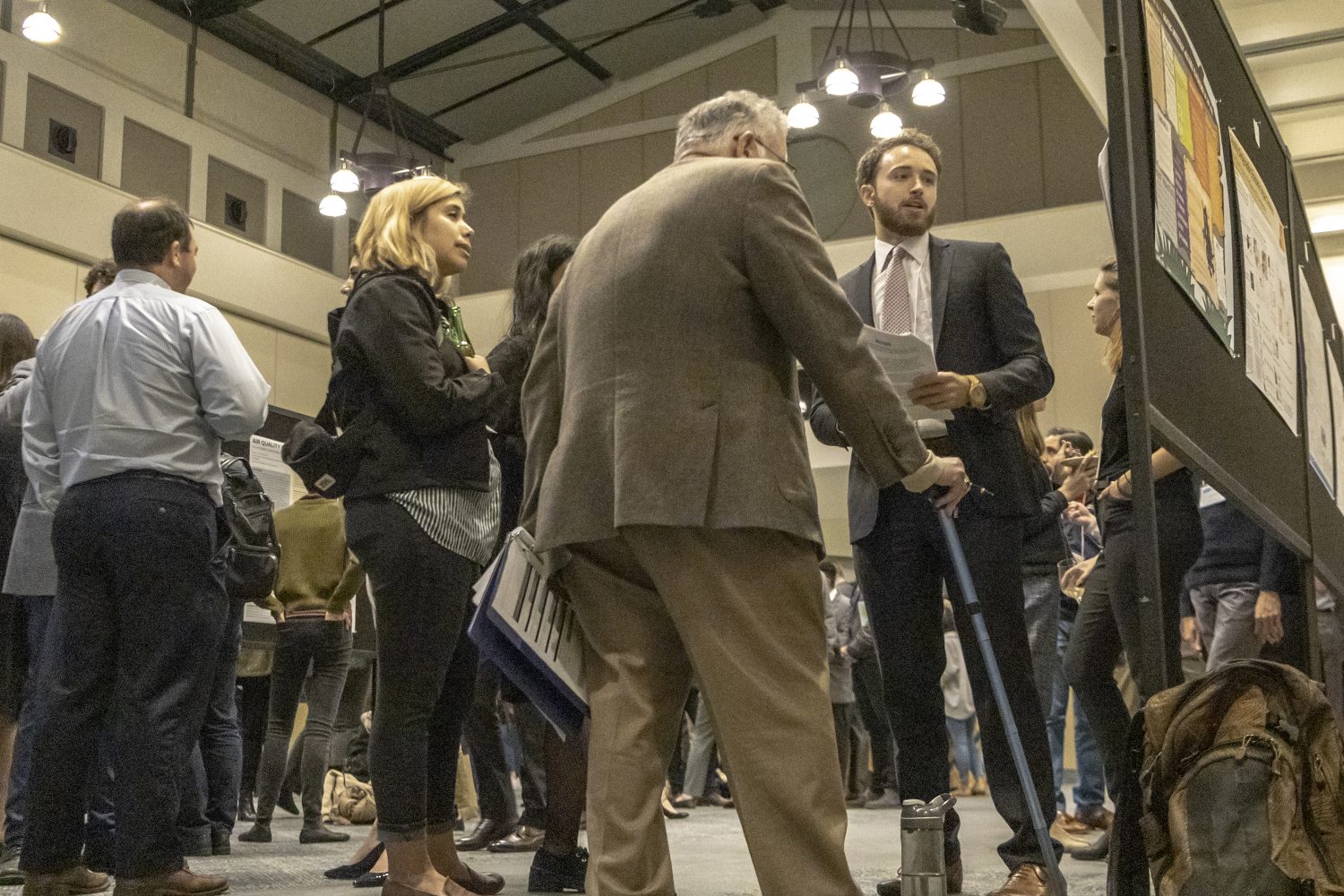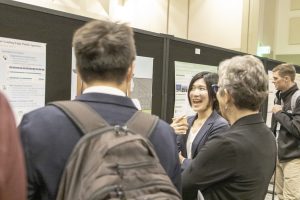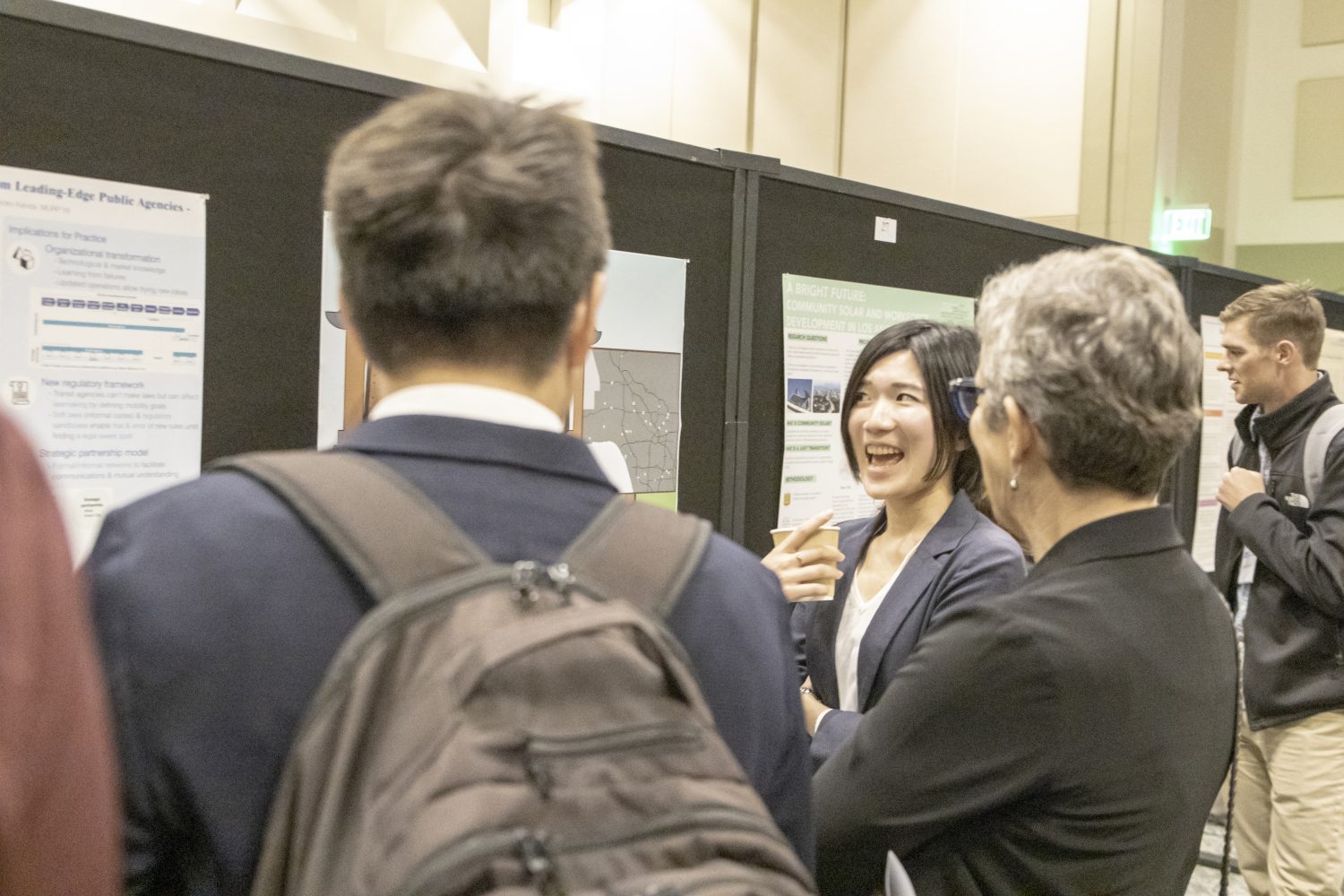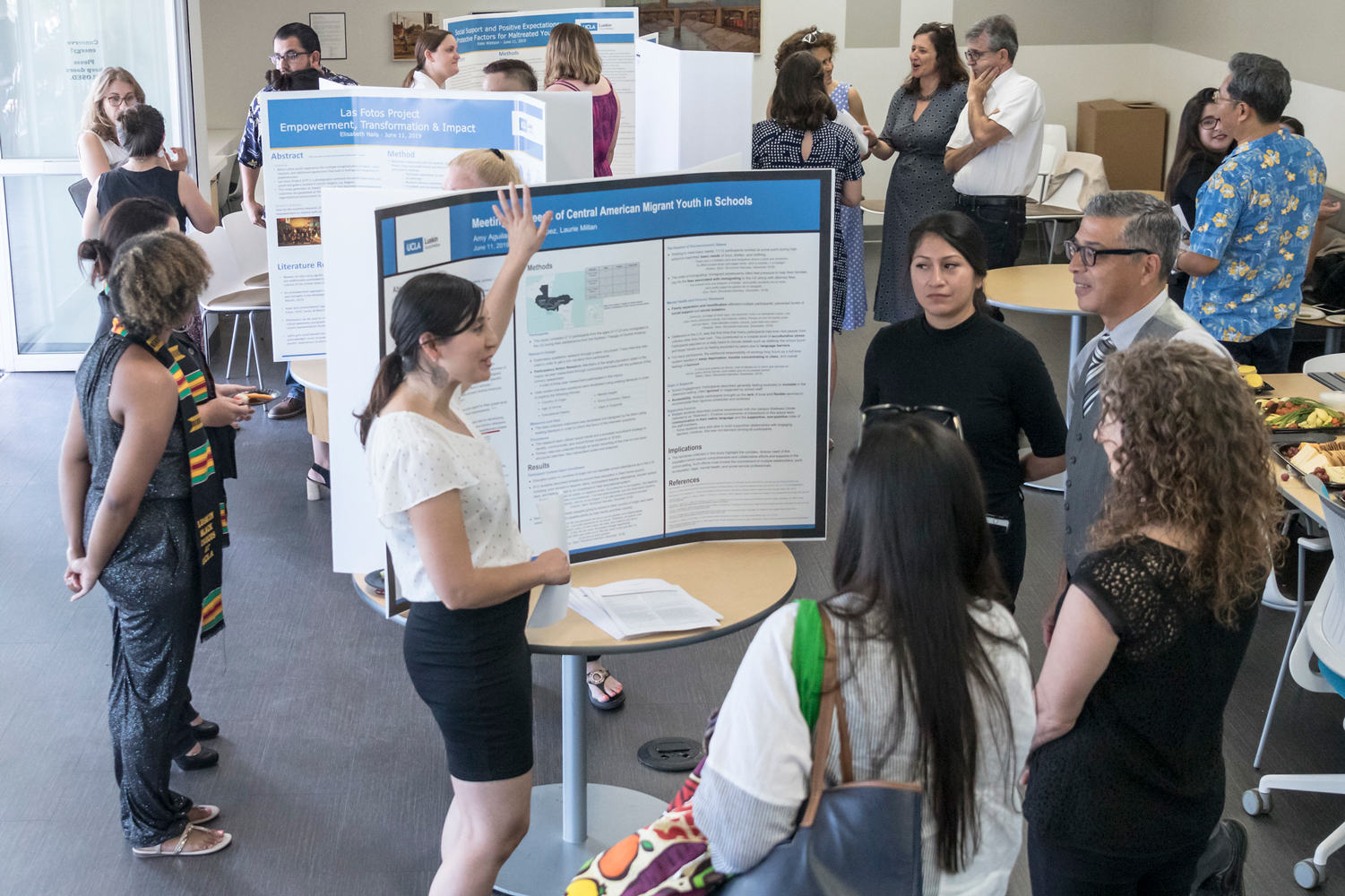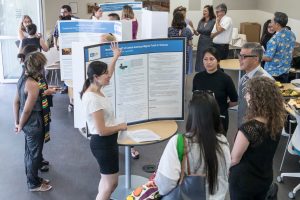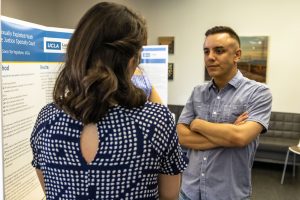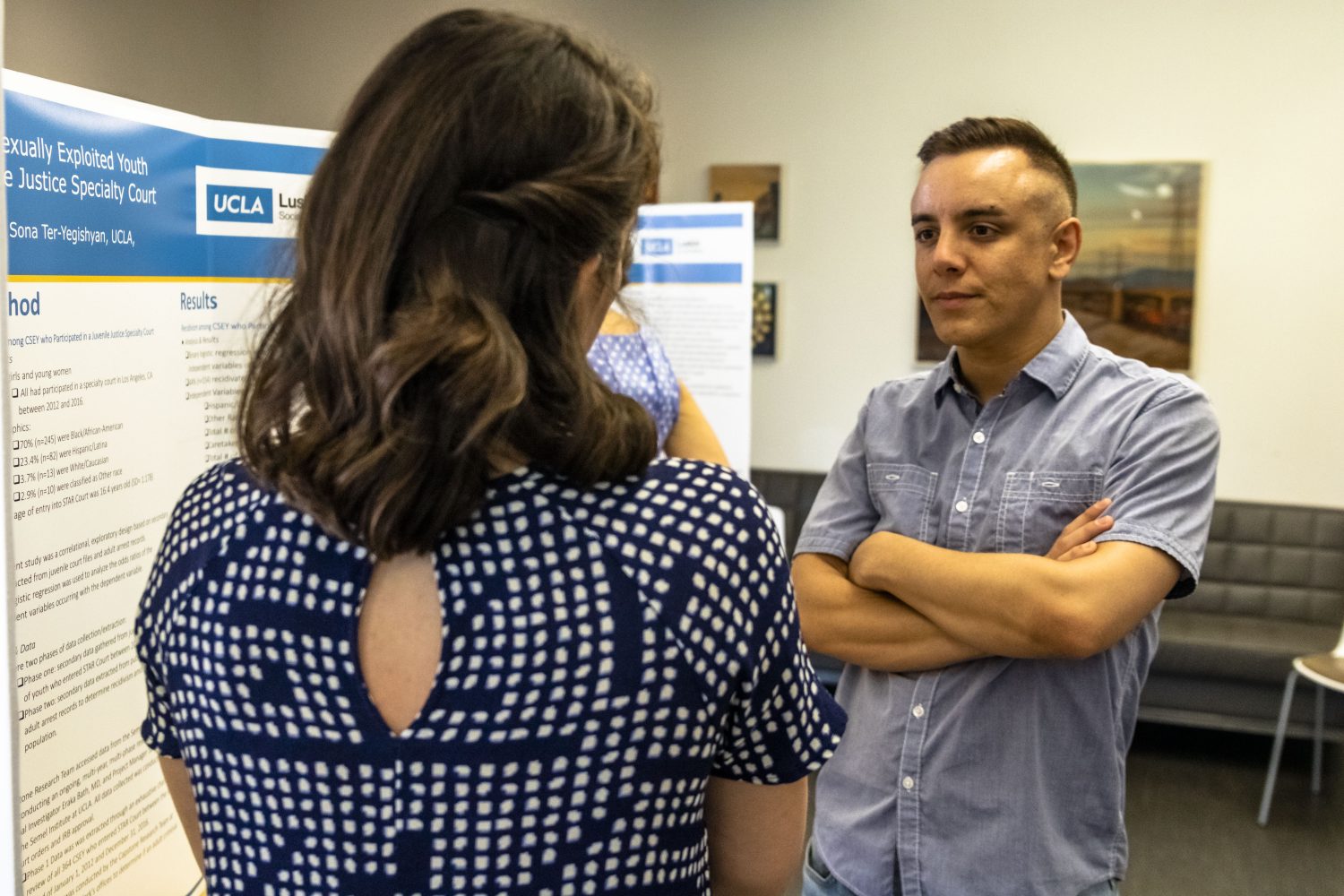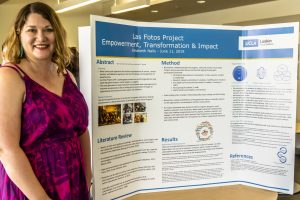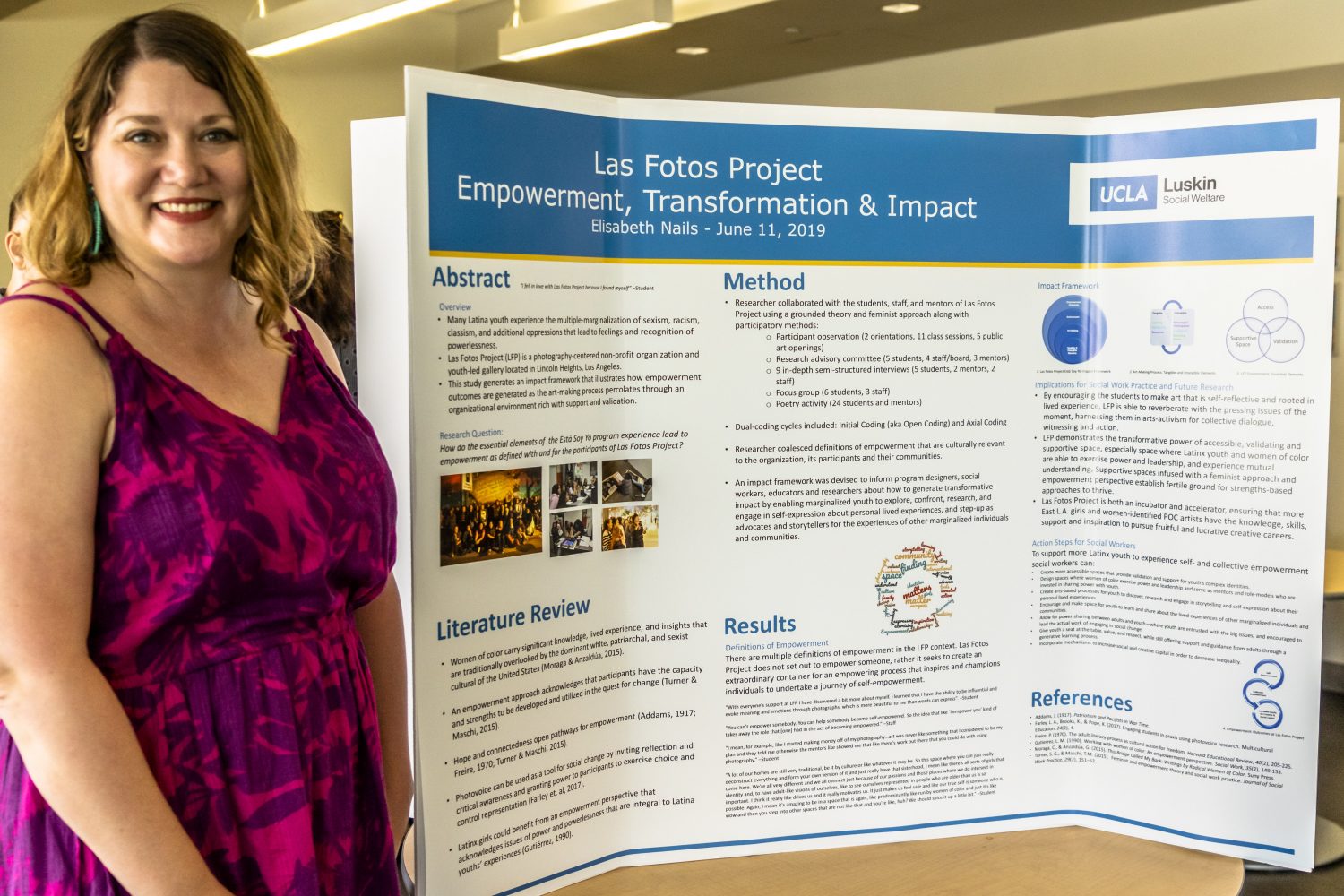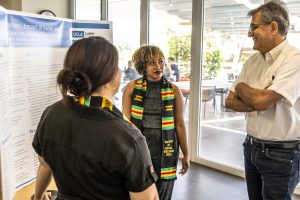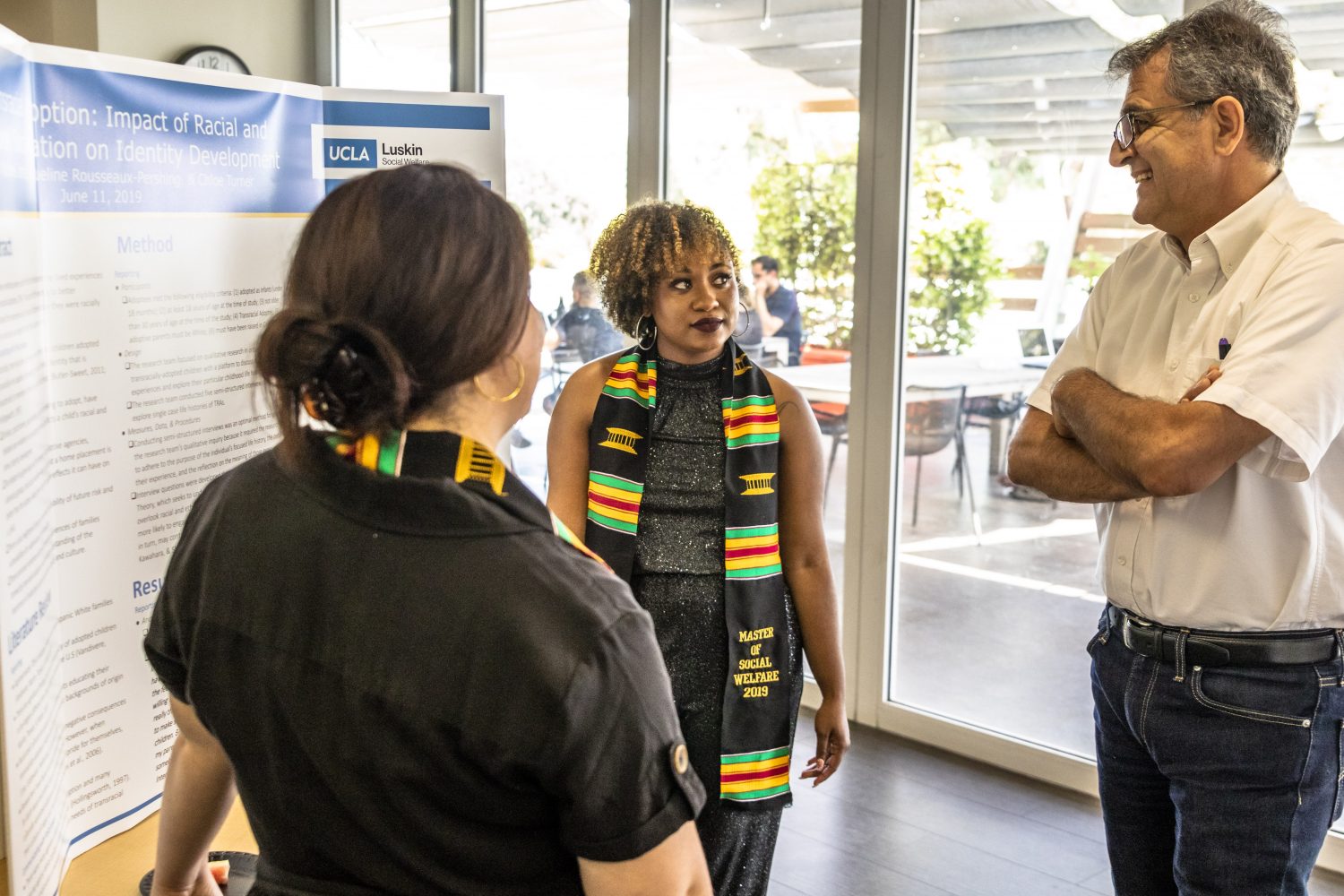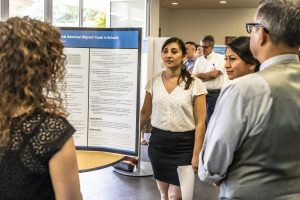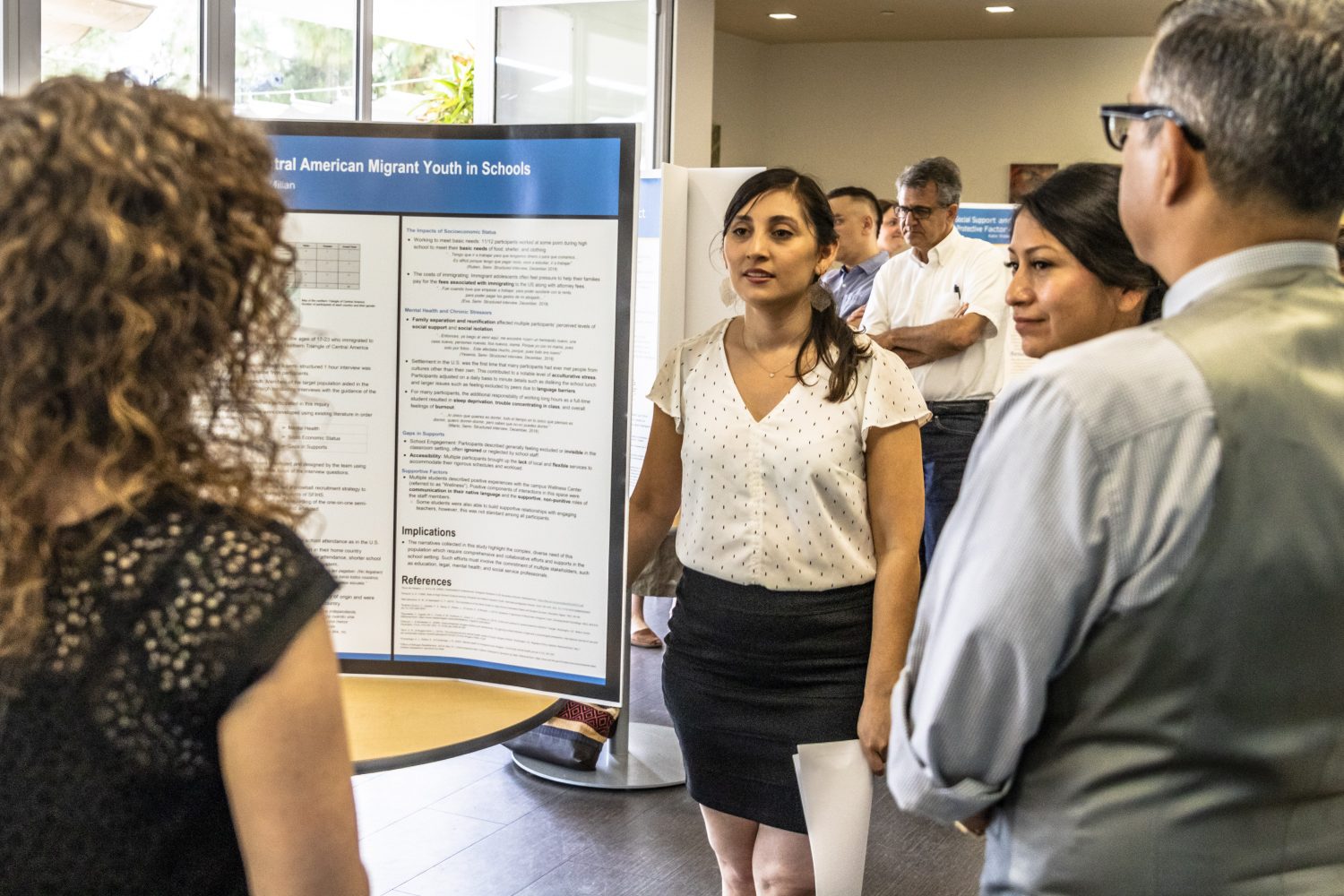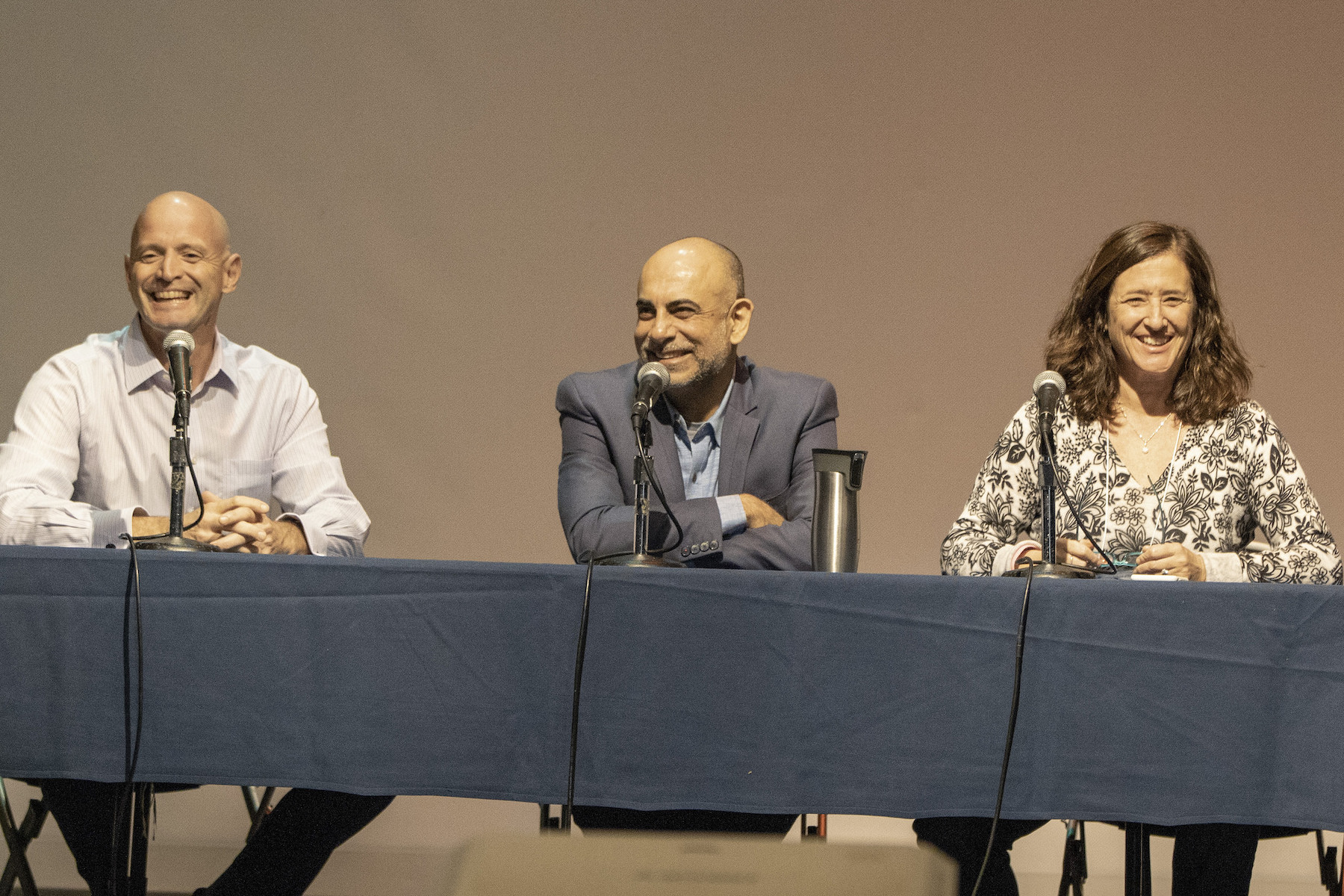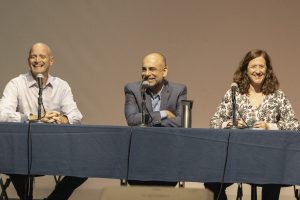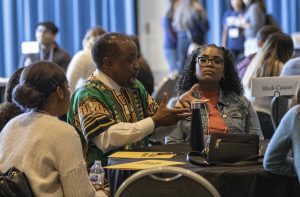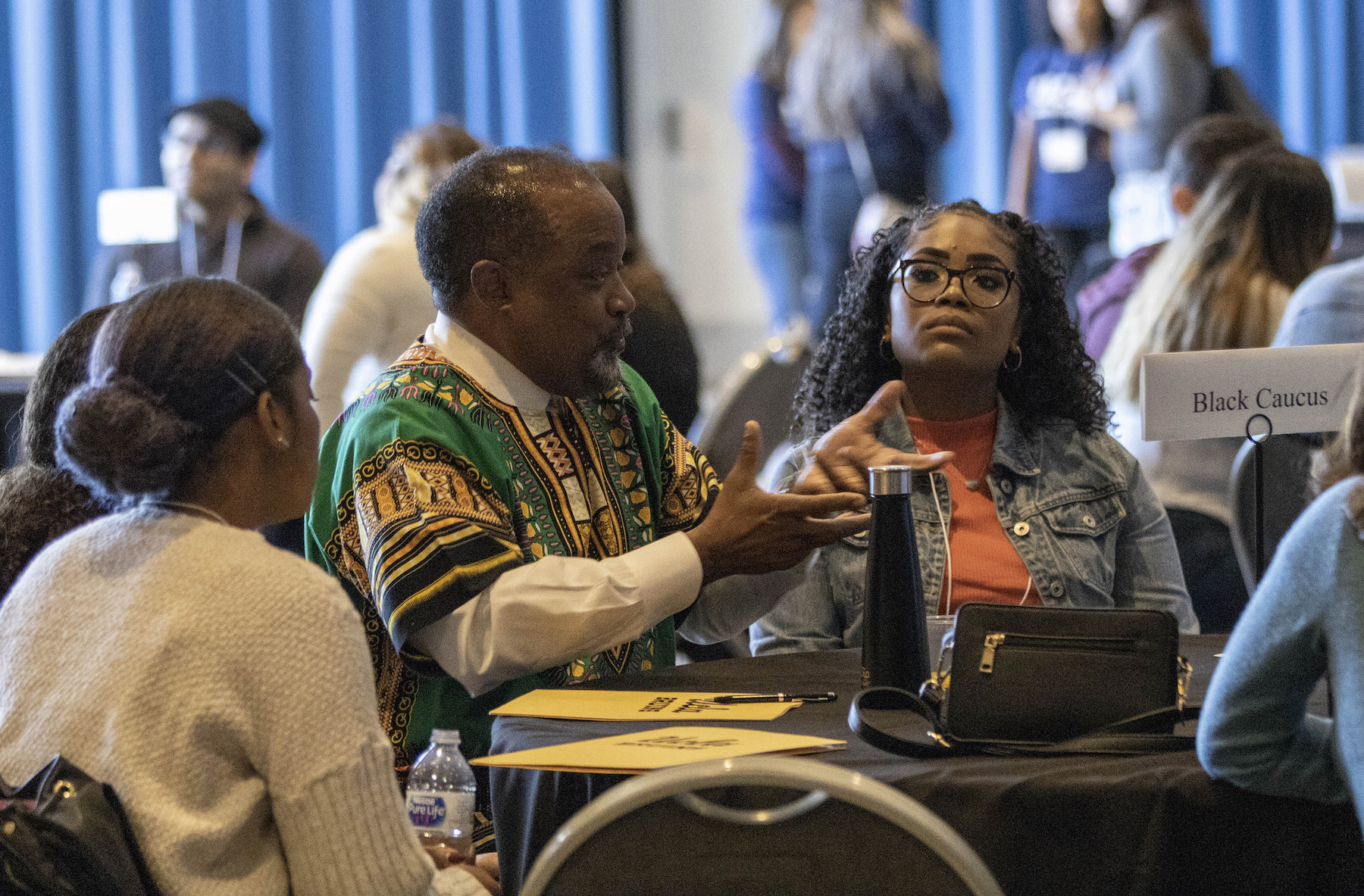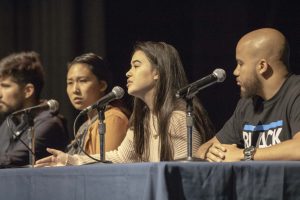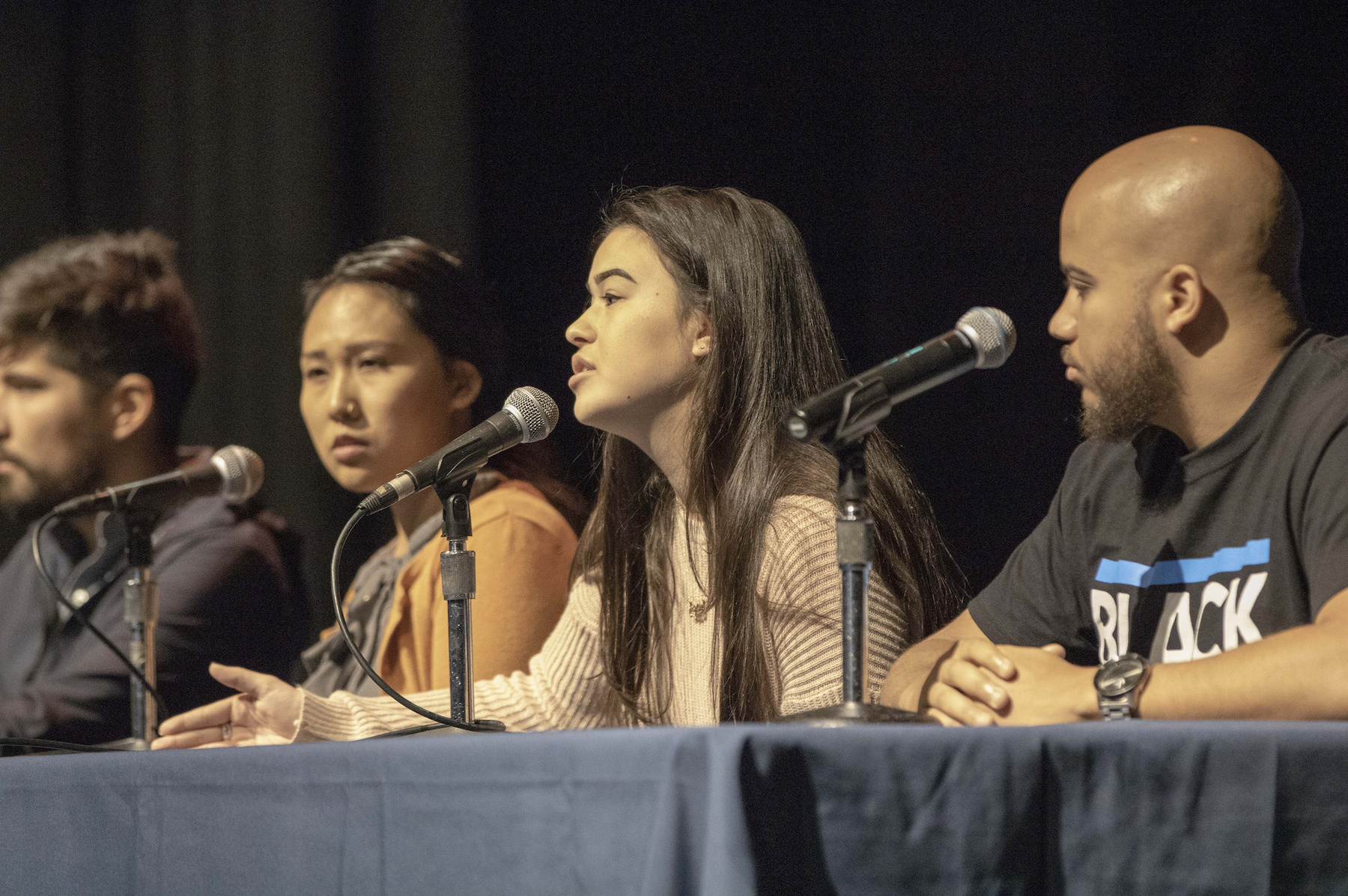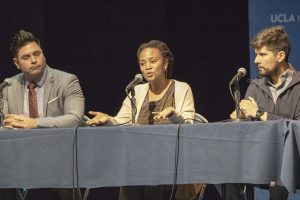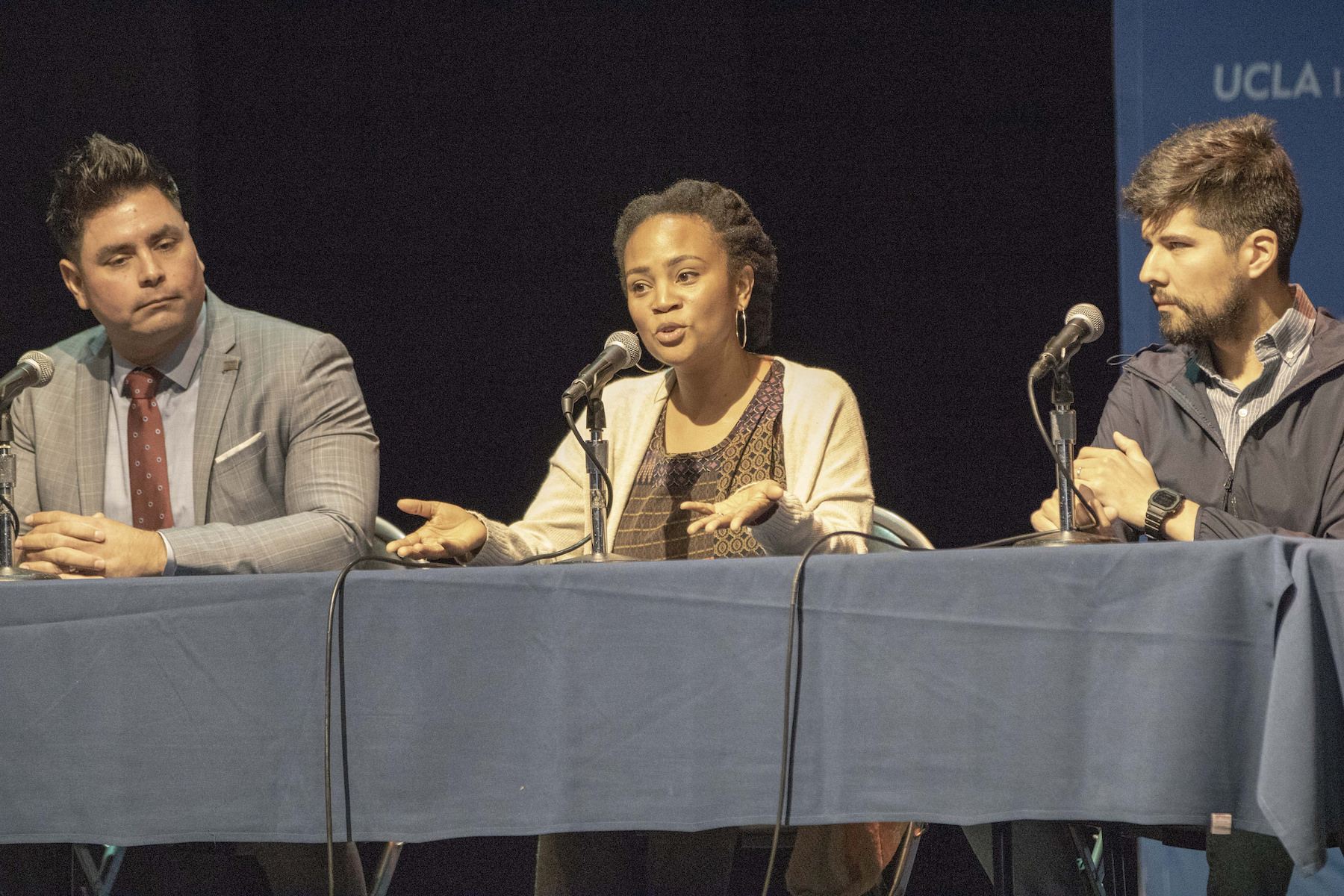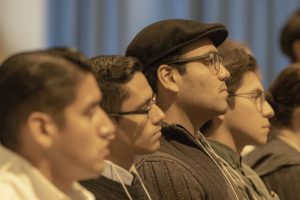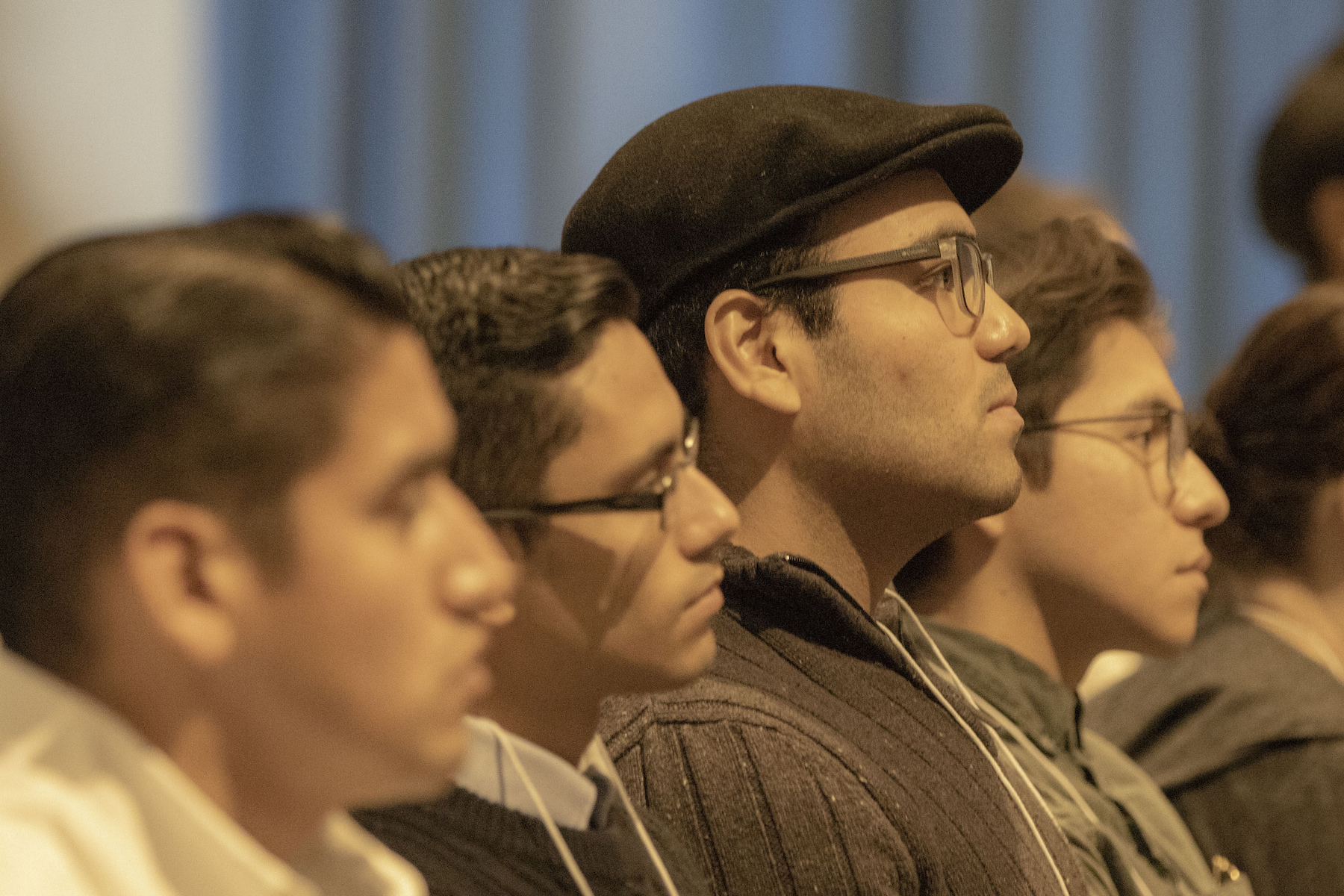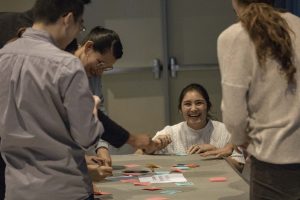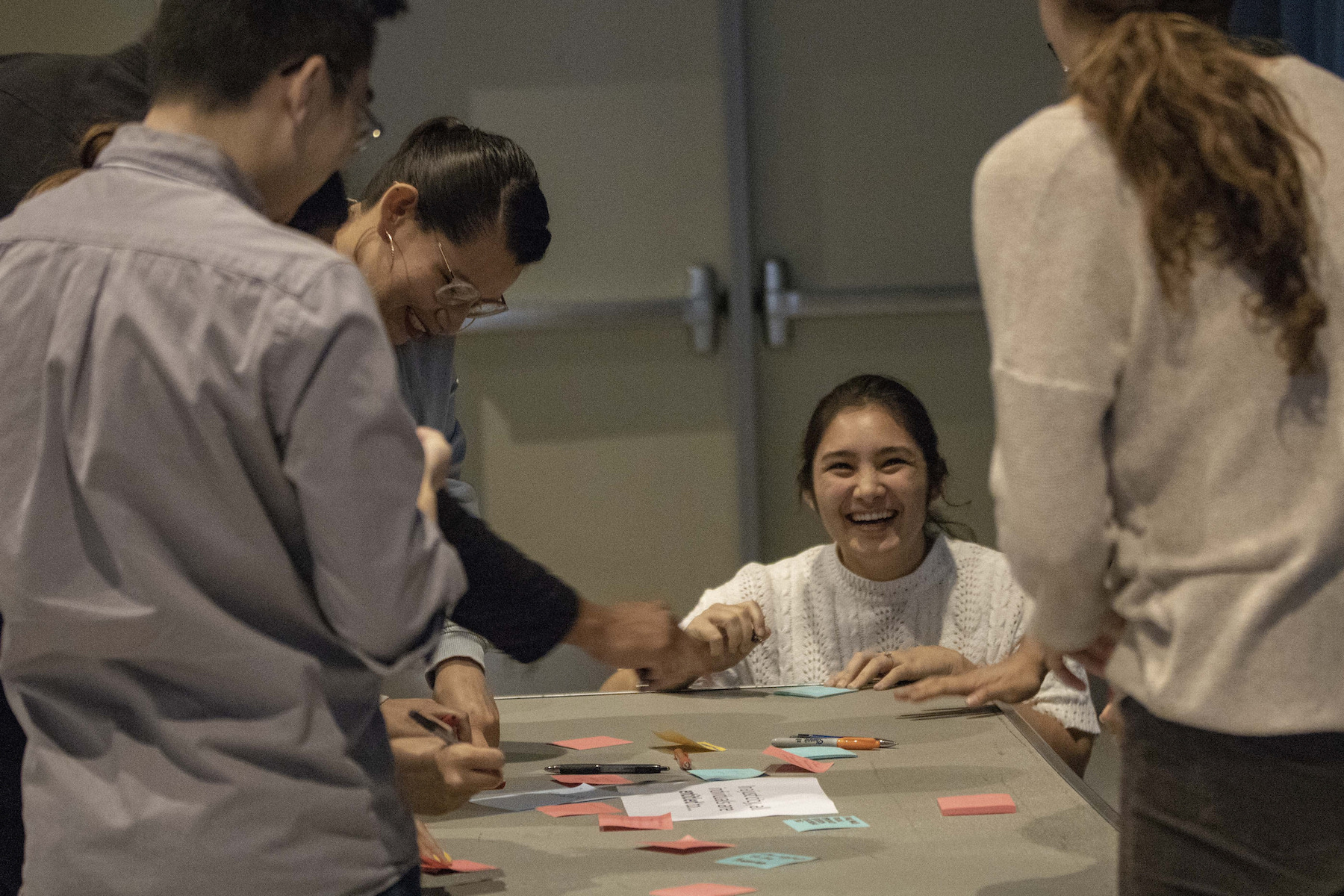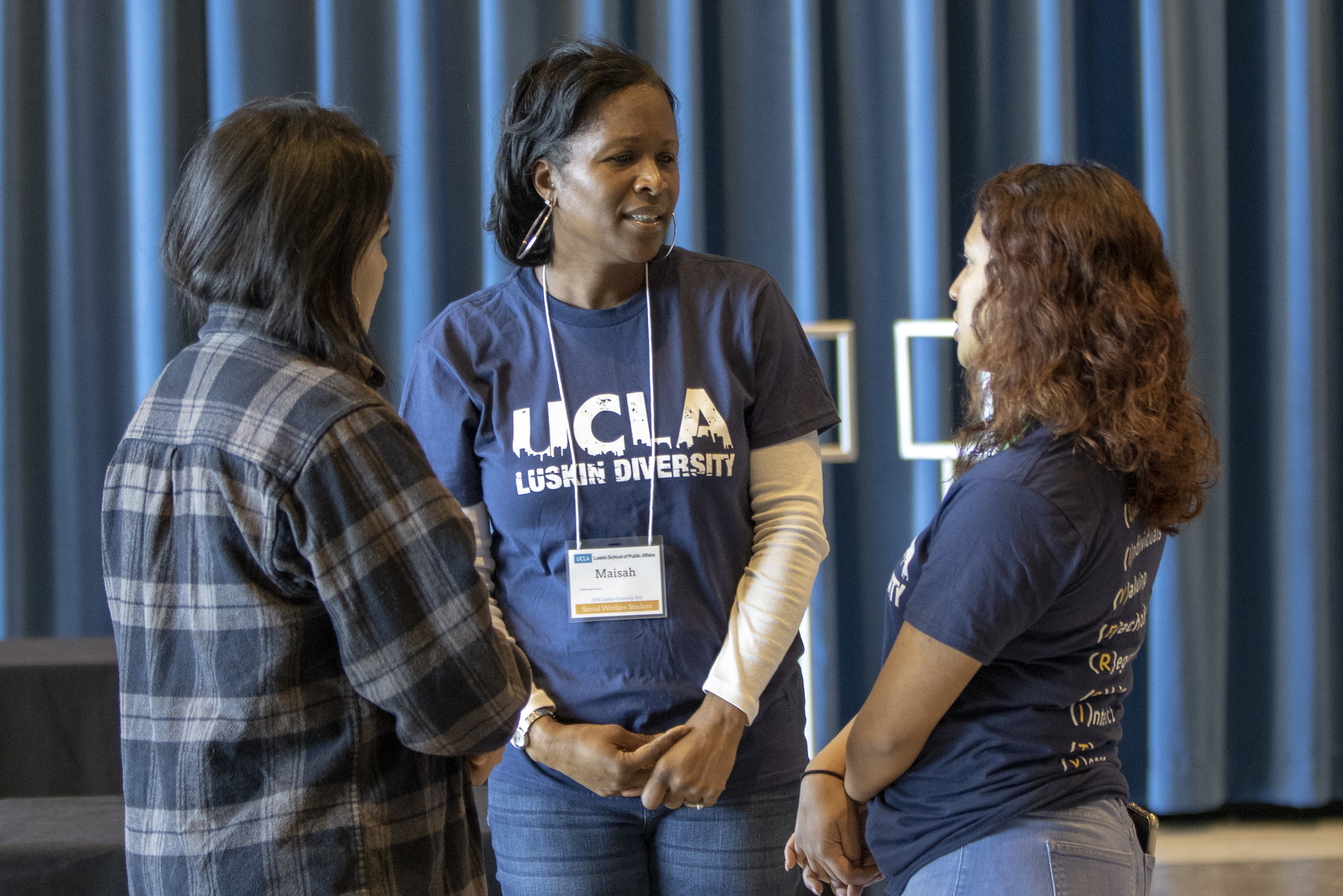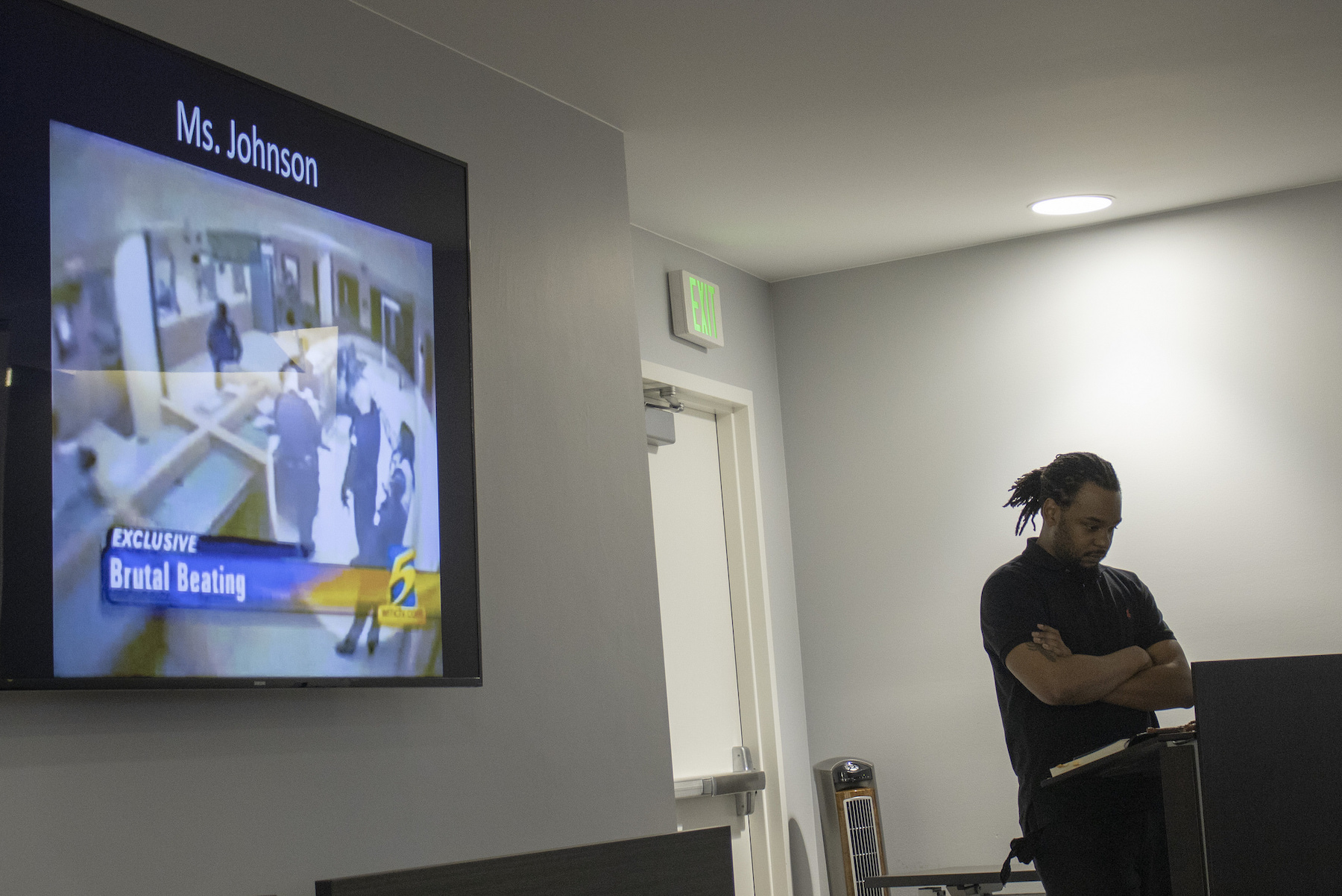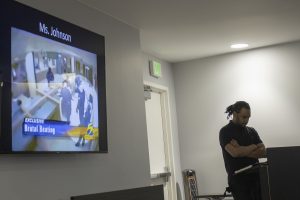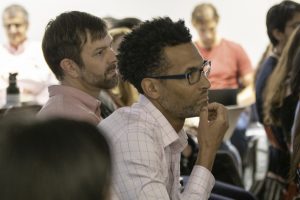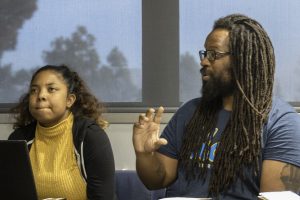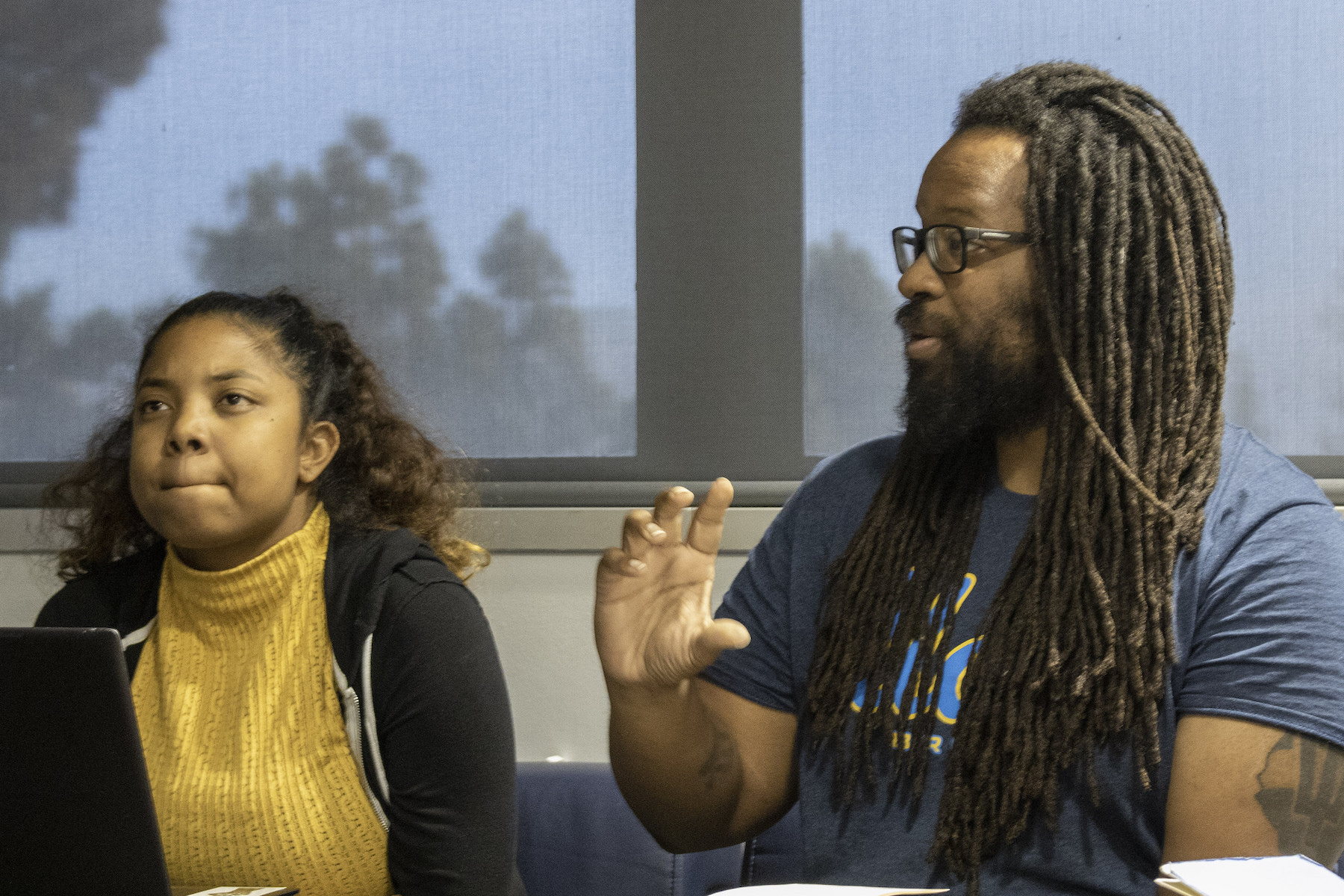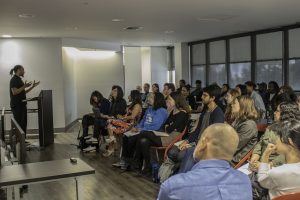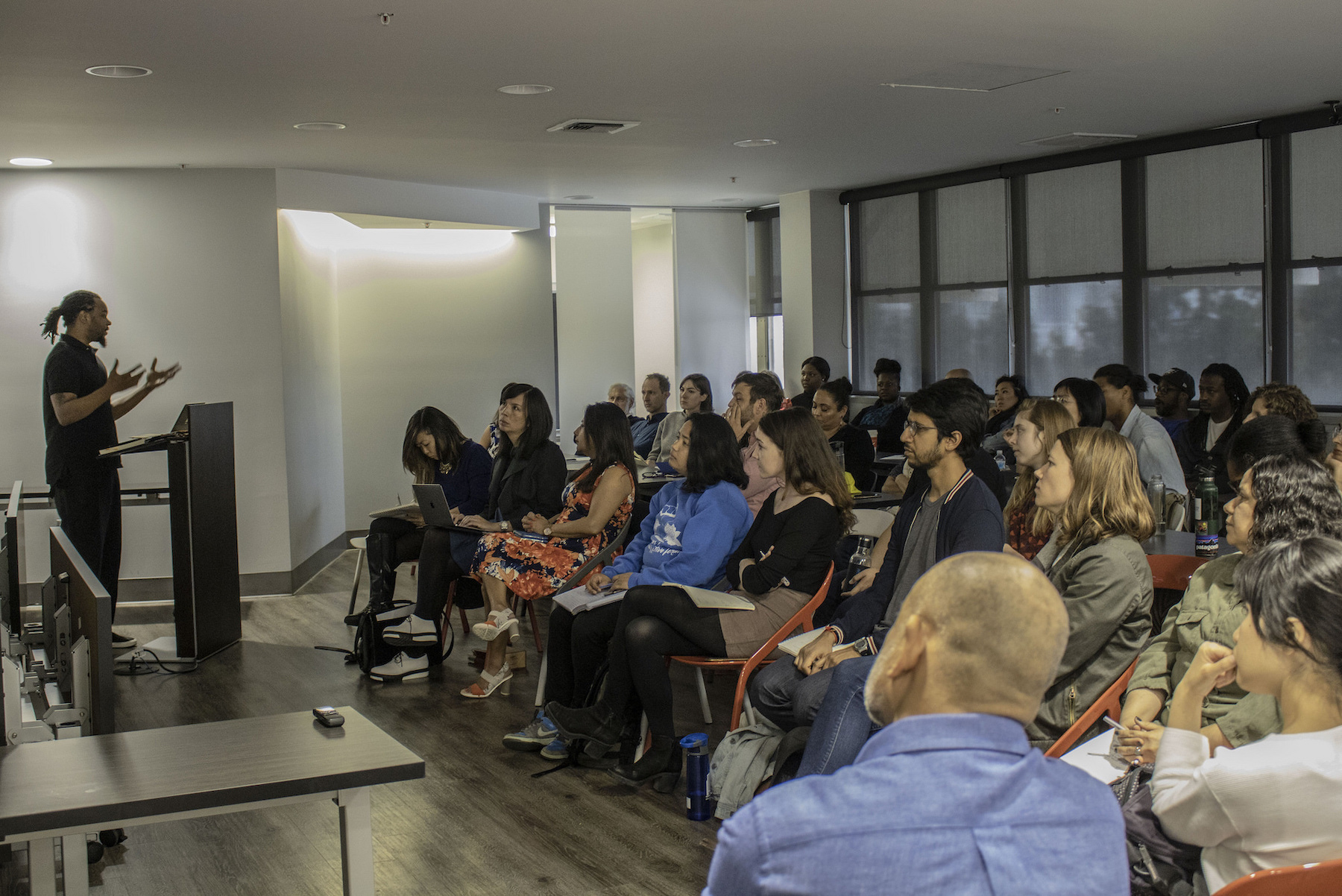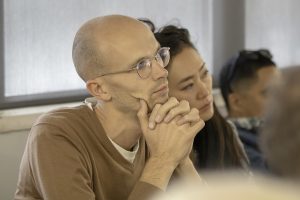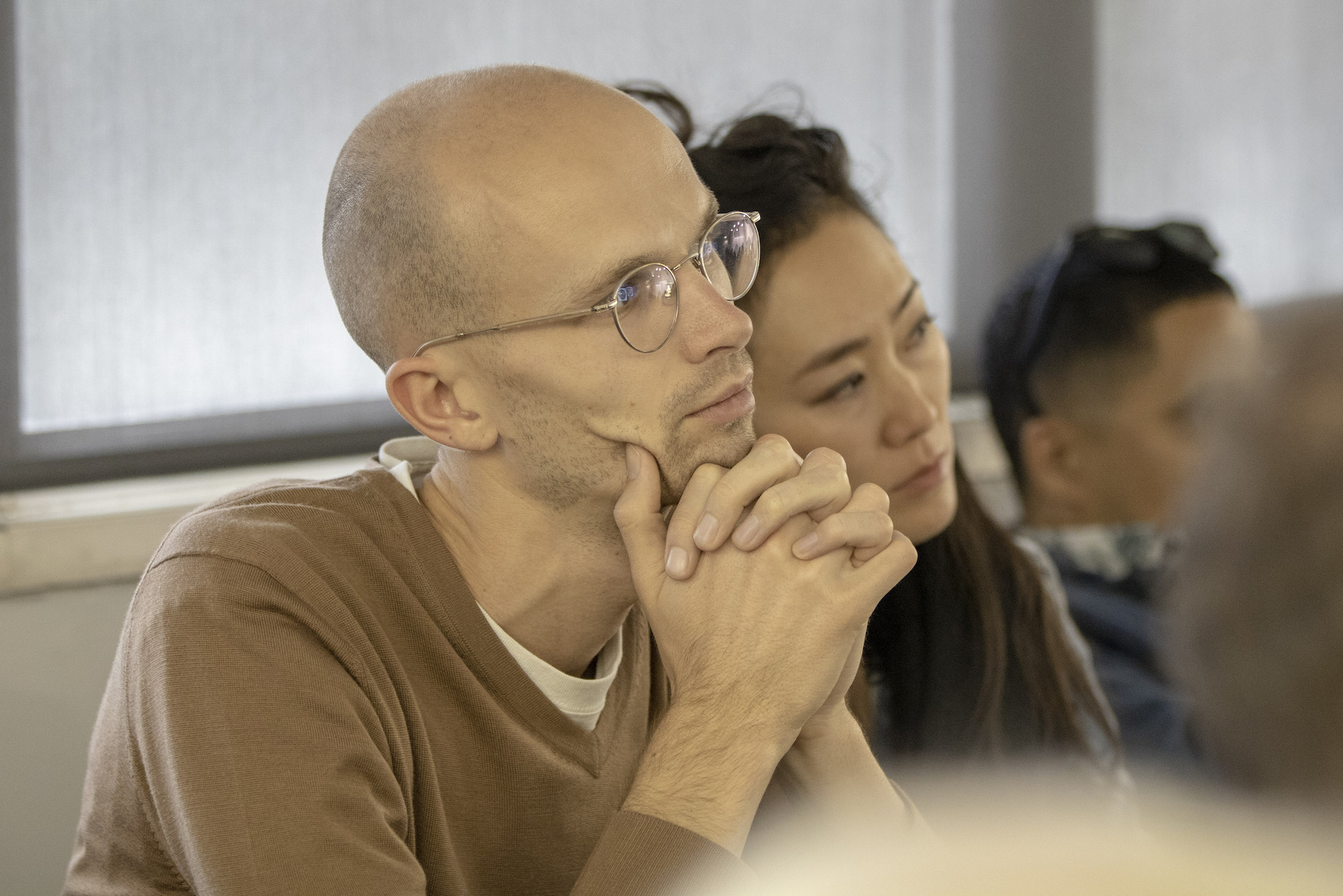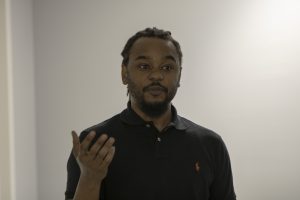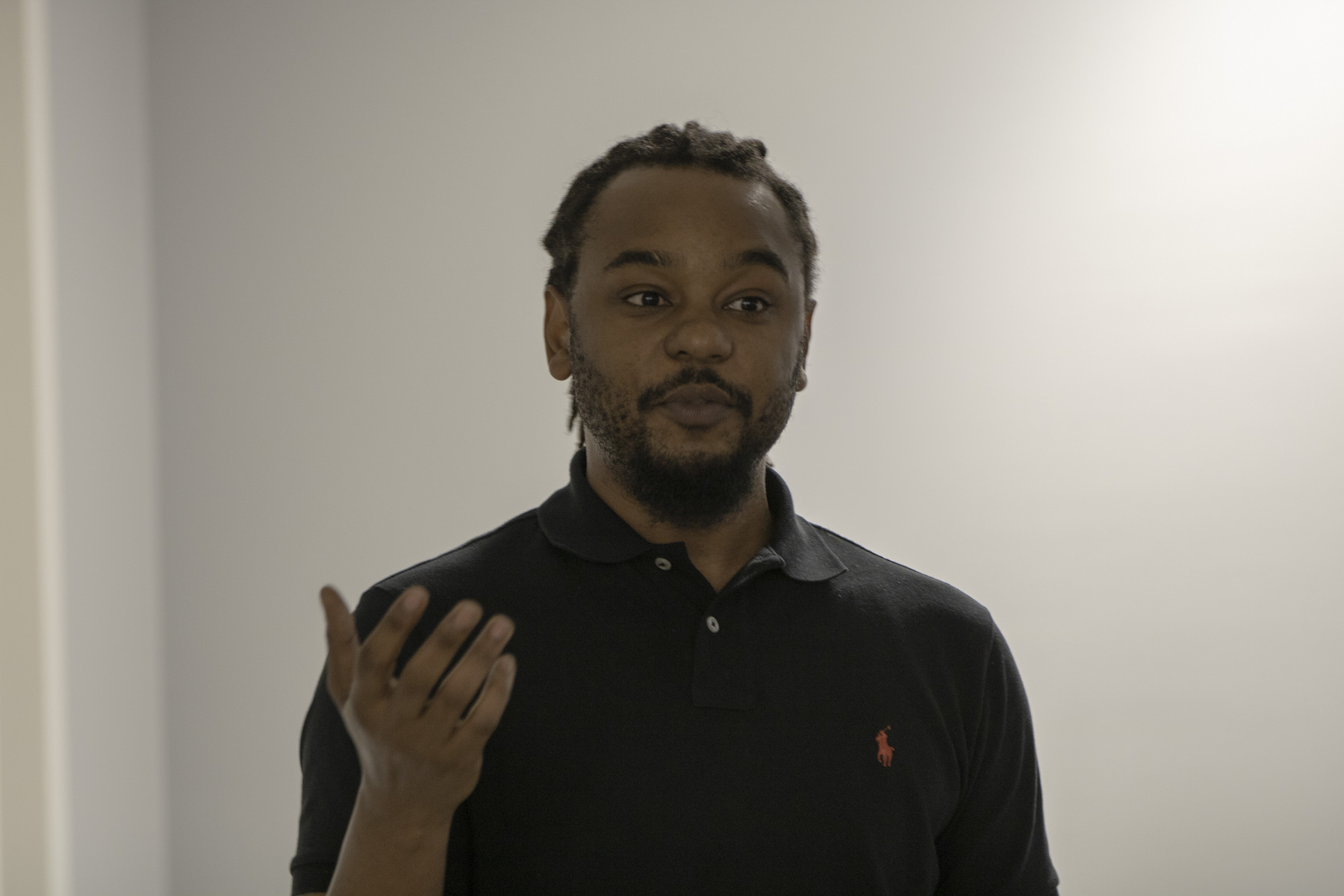A ‘New Day’ for Asian American Women in Arts and Media Luskin Lecture brings together pioneers striving for more authentic portrayals on screen and stage
By Mary Braswell
Four women who have strived to bring more authentic portrayals of Asian Americans onto the screen and stage shared stories of risk-taking, perseverance and the importance of mentorship at the opening event of this year’s UCLA Meyer and Renee Luskin Lecture Series.
The pioneers from diverse parts of the arts and media landscape came together for “Dawn of a New Day,” a conversation at the Japanese American National Museum in downtown Los Angeles on Oct. 17.
“Tonight we hear from Asian American women who have risen to shape the narrative rather than be dictated by the gaze of others,” said Karen Umemoto, professor of urban planning and director of the Asian American Studies Center at UCLA, one of the event’s co-sponsors.
The audience heard from Grace Lee, director of documentaries and feature films; writer, actor and satirist Fawzia Mirza; Tess Paras, who blends acting, music, comedy and producing; and comedian and performance artist Kristina Wong.
“One of the reasons I got into storytelling and filmmaking in the first place is that I wanted to tell the story that I wanted see,” said Lee, who co-founded the Asian American Documentary Network to share resources and lift up emerging artists. “I just didn’t see a lot of films or stories out there about Asian Americans, women, people of color.”
Lee says she makes a point of hiring diverse film crews and interns to “develop that pipeline so that they can see models just like I had when I was first making films.”
“It’s living your own values,” she said. “It’s really important for us to question, ‘Who gets to tell this story? We get to tell this story.’ ”
Mirza took an unconventional path into the creative arts. She was in law school when she realized she’d rather be an actor. She finished her degree and worked as a litigator to pay off student loans but realized that “art, for me, is a way of figuring out who I am.”
“Talking about my queer, Muslim, South Asian identity through art is a way for me to survive,” she said, but cautioned, “Just by virtue of claiming your identity, sometimes you’re not trying to be political but you are politicized.”
Paras spoke of the one-dimensional acting roles — like the “white girl’s nerdy friend” — that are often available to Asian American women. After a YouTube video she created to satirize such typecasting went viral, she realized, “Oh, this is what happens when you take a big risk and tell your story.”
There is a hunger for honest portrayals of diverse communities, Paras said, a lesson she learned through a crowdfunding campaign for her film about a young Filipina American who struggles to talk to her family about a sexual assault.
“Folks came out of the woodwork because I was creating something that had not to my knowledge really been told,” Paras said. “There were a bunch of young Filipino women who were like, here’s 15 dollars, here’s 25, here’s 40, because I have never seen a story about this.”
Three of the four panelists — Lee, Paras and Wong — are alumnae of UCLA, as is moderator Ada Tseng, entertainment editor for TimesOC.
“I was convinced that the rest of the world looked like UCLA, … a world where everyone is super-political and talks all the time about politics and identity,” said Wong, whose senior project for her world arts and culture major was a fake mail-order-bride site that skewered stereotypes of Asian women.
“So much of the path I’m on felt quite normal because there were other Asian American queer and non-binary folks who were creating solo work,” Wong said. Not until she left California to go on tour did she find how misunderstood her edgy humor could be.
The event was also the closing program for the multimedia exhibit “At First Light,” organized by the Japanese American National Museum and Visual Communications, a nonprofit media arts group. The UCLA Luskin School of Public Affairs co-sponsored the lecture, along with the UCLA Asian American Studies Center and its Center for Ethno Communications and the Asian American Studies Department at UCLA.
“The panel tonight is a testament to how far we’ve come, though we all know there’s still so much further to go,” said Umemoto, noting that UCLA’s Asian American studies and urban planning programs are marking 50-year anniversaries this year.
Also celebrating a milestone is the UCLA Luskin School of Public Affairs, which just turned 25, Dean Gary Segura told the crowd. The Luskin Lectures are a key part of the School’s mission to hold a “dialogue with the people of Los Angeles and California on issues of public concern,” Segura said.
View additional photos from the Luskin Lecture on Flickr.
